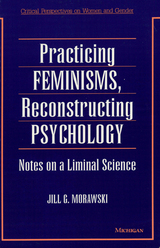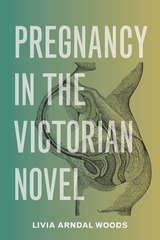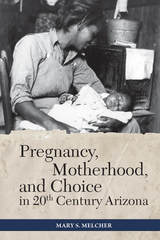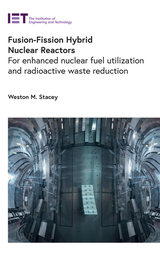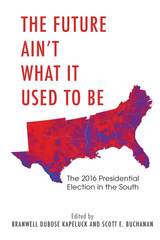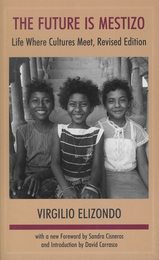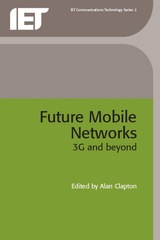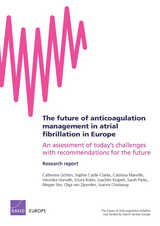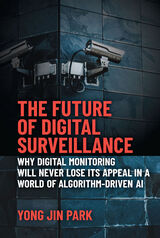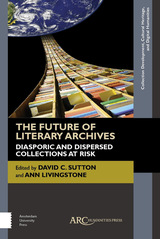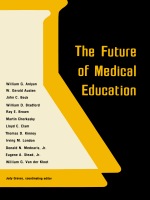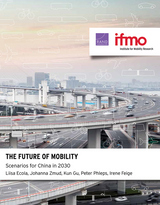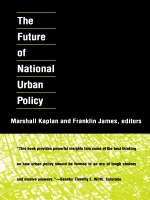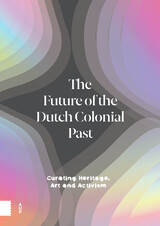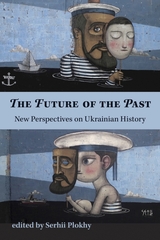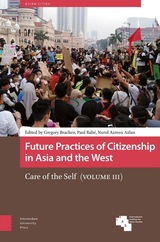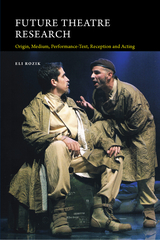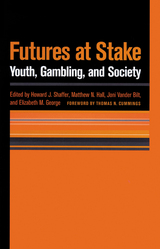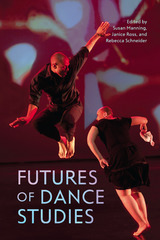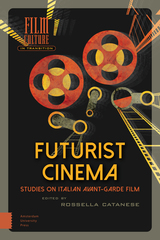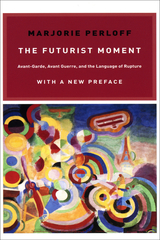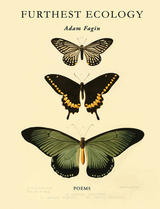 Furthest Ecology
Adam Fagin
University Press of Colorado, 2019 Furthest Ecology takes up the life and labor of Abbott Thayer, the prickly, irrepressible American painter and naturalist nicknamed “the father of camouflage.” In 1896, Thayer discovered countershading, also known as “Thayer’s Law,” the theory of animal coloration often credited for laying the groundwork for military camouflage in World War I. Fagin’s poetry follows Thayer through “pure leafy space” ringing with “hypertelic / rhythms of a redpoll,” examining in lush, panoramic detail “the clairvoyance of the artist’s attention.” But this idyllic portrait unravels as Thayer’s story proceeds. Grieving the death of his first wife and, later, cutting a frenzied path through wartime Europe, Thayer encounters darker forces, within and without. With spare beauty and sharp-edged syntax, Fagin conjures the painter’s world: Loss, despair, obsession, ecstasy, and the aesthetic sublime. Furthest Ecology is a vivid and powerful debut that will haunt readers with its singular vision of artistic pursuit.
 Fury
Elfriede Jelinek
Seagull Books, 2022 A new play from Nobel Prize winner Elfriede Jelinek that deals with the 2015 terror attack on the satirical French magazine Charlie Hebdo’s offices in Paris.
In Greek mythology, it is Hera who blinds the hero Heracles, so that, in a fit of fury, he kills his own family. In the twenty-first century, the gods have another name. So did the three young men who stormed a magazine’s editorial office and a Jewish supermarket in Paris in January 2015 and murdered twelve people. The blind fury, however, remained and more virulent than ever, not least because the weapons were so much more effective.
In this raging text, arguably one of her darkest, Nobel Prize winner Elfriede Jelinek investigates topical political events in the context of enduring history and myths. Fury expresses itself not only multi-voiced and from the changing perspective of Islamist terrorists (and their special hatred of Jews), in the shape of furious German citizens, individual narcissistic humiliation, or brutal distribution battles around the globe. Rather, fury also appears as the motor that has driven people with a devastating force for centuries.
With her characteristic linguistic power, Jelinek articulates her own disconcertedness in the face of these crimes. In passing, she returns repeatedly to the contradiction between religious laws against representation and the deluge of images online, where movies of assassination, severed heads, and other atrocities are exhibited for millions to see. Fury is a compact grand epic that starts in primal times and attempts to describe the indescribable, relating the inexplicable in our times.
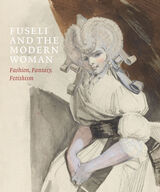 Fuseli and the Modern Woman: Fashion, Fantasy, Fetishism
Edited by David Solkin
Paul Holberton Publishing, 2022 A catalog accompanying the first exhibition devoted to a fascinating group of drawings by one of eighteenth-century Europe’s most idiosyncratic, original, and controversial artists.
Best known for his notoriously provocative painting The Nightmare, Anglo-Swiss painter Henry Fuseli (1741–1825) cultivated a reputation for eccentricity, with vividly stylized images of supernatural creatures, muscle-bound heroes, and damsels in distress. While these convinced some viewers of the greatness of his genius, others dismissed him as a charlatan, or as completely mad.
By bringing together more than fifty of his works, this volume offers unprecedented access to see one of the finest draftsmen of the Romantic period at his most innovative and exciting. Visitors to the show and readers of the lavishly illustrated catalog will further be invited to consider how Fuseli’s drawings of women, as products of the turbulent aftermath of the American and French Revolutions, speak to concerns about gender and sexuality that have never been more relevant than they are today.
The exhibition showcases drawings brought together from international collections, including the Kunsthaus Zürich, the Auckland Art Gallery in New Zealand, and other European and North American institutions.
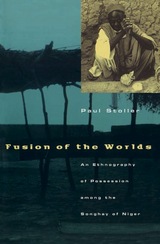 Fusion of the Worlds: An Ethnography of Possession among the Songhay of Niger
Paul Stoller
University of Chicago Press, 1989 "This ethnography is more like a film than a book, so well does Stoller evoke the color, sight, sounds, and movements of Songhay possession ceremonies."—Choice
"Stoller brilliantly recreates the reality of spirit presence; hosts are what they mediate, and spirits become flesh and blood in the 'fusion' with human existence. . . . An excellent demonstration of the benefits of a new genre of ethnographic writing. It expands our understanding of the harsh world of Songhay mediums and sorcerers."—Bruce Kapferer, American Ethnologist
"A vivid story that will appeal to a wide audience. . . . The voices of individual Songhay are evident and forceful throughout the story. . . . Like a painter, [Stoller] is concerned with the rich surface of things, with depicting images, evoking sensations, and enriching perceptions. . . . He has succeeded admirably." —Michael Lambek, American Anthropologist
"Events (ceremonies and life histories) are evoked in cinematic style. . . . [This book is] approachable and absorbing—it is well written, uncluttered by jargon and elegantly structured."—Richard Fardon, Times Higher Education Supplement
"Compelling, insightful, rich in ethnographic detail, and worthy of becoming a classic in the scholarship on Africa."—Aidan Southall, African Studies Review
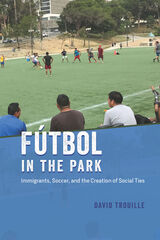 Fútbol in the Park: Immigrants, Soccer, and the Creation of Social Ties
David Trouille
University of Chicago Press, 2021 You know the scene: amateur soccer players battling over the ball, spectators cheering from the sidelines, vendors selling their wares from carts. Over the past half century, immigration from Latin America has transformed the public landscape in the United States, and numerous communities are witnessing one of the hallmarks of this transformation: the emergence of park soccer. In Fútbol in the Park, David Trouille takes us into the world of Latino soccer players who regularly play in an upscale Los Angeles neighborhood where they are not always welcome. Together on the soccer field, sharing beers after the games, and occasionally exchanging taunts or blows, the men build relationships and a sense of who they are. Through these engrossing, revealing, and at times immortalizing activities, they forge new identities, friendships, and job opportunities, giving themselves a renewed sense of self-worth and community. As the United States becomes increasingly polarized over issues of immigration and culture, Fútbol in the Park offers a close look at the individual lives and experiences of migrants.
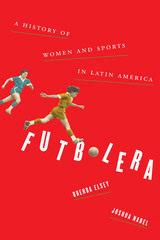 Futbolera: A History of Women and Sports in Latin America
By Brenda Elsey and Joshua Nadel
University of Texas Press, 2019 Latin American athletes have achieved iconic status in global popular culture, but what do we know about the communities of women in sport? Futbolera is the first monograph on women’s sports in Latin America. Because sports evoke such passion, they are fertile ground for understanding the formation of social classes, national and racial identities, sexuality, and gender roles. Futbolera tells the stories of women athletes and fans as they navigated the pressures and possibilities within organized sports. Futbolera charts the rise of physical education programs for girls, often driven by ideas of eugenics and proper motherhood, that laid the groundwork for women’s sports clubs, which began to thrive beyond the confines of school systems. Futbolera examines how women challenged both their exclusion from national pastimes and their lack of access to leisure, bodily integrity, and public space. This vibrant history also examines women’s sports through comparative case studies of Argentina, Brazil, Chile, Costa Rica, Mexico, and others. Special attention is given to women’s sports during military dictatorships of the 1970s and 1980s as well as the feminist and democratic movements that followed. The book culminates by exploring recent shifts in mindset toward women’s football and dynamic social movements of players across Latin America.
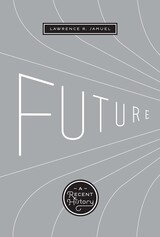 Future: A Recent History
By Lawrence R. Samuel
University of Texas Press, 2009 The future is not a fixed idea but a highly variable one that reflects the values of those who are imagining it. By studying the ways that visionaries imagined the future—particularly that of America—in the past century, much can be learned about the cultural dynamics of the time. In this social history, Lawrence R. Samuel examines the future visions of intellectuals, artists, scientists, businesspeople, and others to tell a chronological story about the history of the future in the past century. He defines six separate eras of future narratives from 1920 to the present day, and argues that the milestones reached during these years—especially related to air and space travel, atomic and nuclear weapons, the women's and civil rights movements, and the advent of biological and genetic engineering—sparked the possibilities of tomorrow in the public's imagination, and helped make the twentieth century the first century to be significantly more about the future than the past. The idea of the future grew both in volume and importance as it rode the technological wave into the new millennium, and the author tracks the process by which most people, to some degree, have now become futurists as the need to anticipate tomorrow accelerates.
The Future Ain't What It Used to Be: The 2016 Presidential Election in the South
Branwell DuBose Kapeluck
University of Arkansas Press, 2018 The Future Ain’t What It Used to Be details how the 2016 presidential election developed in the eleven states that make up the South. Preeminent scholars of Southern politics analyze this momentous election, including the issues that drove southern voters, the nomination process in early 2016, and where the region may be headed politically in the Trump era. In addition, each state chapter includes analysis on notable congressional races and important patterns within the states. This new edited volume will be an important tool for scholars, and also journalists and political enthusiasts seeking a deeper understanding of contemporary southern electoral politics.
 Future Arctic: Field Notes from a World on the Edge
Edward Struzik
Island Press, 2015 In one hundred years, or even fifty, the Arctic will look dramatically different than it does today. As polar ice retreats and animals and plants migrate northward, the arctic landscape is morphing into something new and very different from what it once was. While these changes may seem remote, they will have a profound impact on a host of global issues, from international politics to animal migrations. In Future Arctic, journalist and explorer Edward Struzik offers a clear-eyed look at the rapidly shifting dynamics in the Arctic region, a harbinger of changes that will reverberate throughout our entire world.
Future Arctic reveals the inside story of how politics and climate change are altering the polar world in a way that will have profound effects on economics, culture, and the environment as we know it. Struzik takes readers up mountains and cliffs, and along for the ride on snowmobiles and helicopters, sailboats and icebreakers. His travel companions, from wildlife scientists to military strategists to indigenous peoples, share diverse insights into the science, culture and geopolitical tensions of this captivating place. With their help, Struzik begins piecing together an environmental puzzle: How might the land’s most iconic species—caribou, polar bears, narwhal—survive? Where will migrating birds flock to? How will ocean currents shift? And what fundamental changes will oil and gas exploration have on economies and ecosystems? How will vast unclaimed regions of the Arctic be divided?
A unique combination of extensive on-the-ground research, compelling storytelling, and policy analysis, Future Arctic offers a new look at the changes occurring in this remote, mysterious region and their far-reaching effects.
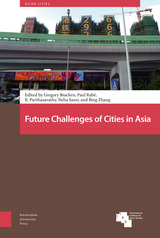 Future Challenges of Cities in Asia
Gregory Bracken
Amsterdam University Press, 2020 The ten essays in Future Challenges of Cities in Asia engage with some of the most critical urban questions of the near future across Asia. These comprise socio-economic and cultural transitions as a result of urbanization; environmental challenges, especially questions of climate change, natural disasters, and environmental justice; and the challenges of urban infrastructure, built form, and new emerging types of urban settlements. The essays demonstrate that it is increasingly difficult to conceptualize the ‘urban’ as one particular type of settlement. Rather, it would be more accurate to say that the ‘urban’ characterizes a global transition in the way we are beginning to think about settlements. This book is of interest not only to researchers interested in comparative and inter-disciplinary research, but also to urban practitioners more broadly, illustrating through concrete cases the challenges that urban regions in Asia and beyond are facing, and the various opportunities that exist for dealing with these challenges.
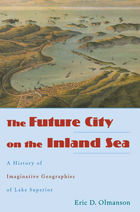 The Future City on the Inland Sea: A History of Imaginative Geographies of Lake Superior
Eric D. Olmanson
Ohio University Press, 2007 Throughout the nineteenth century, the southern shores of Lake Superior held great promise for developers imagining the next great metropolis. These new territories were seen as expansesto be filled, first with romantic visions, then with scientific images, and later with vistas designed to entice settlement and economic development. TheFuture City on the Inland Sea describes the attempts of explorers under government, commercial, or scientific sponsorship to project their imaginativevisions on a region where the future did not happen as planned.Author Eric D. Olmanson takes a fresh look at the settlements in the vicinity of Chequamegon Bay and the Apostle Islands by analyzing the texts andimages left by the missionaries, geologists, ordinance surveyors, newspaper editors, and boosters. The Future City on the Inland Sea shows how new visions of the place absorbed and replaced the old ones, eventually producing what might be called for the first time “a region.”More than a regional geography, The Future City on the Inland Sea is an appraisal of these early efforts to meld geographies of physical nature with those of human ideals, a demonstration of how thoroughly and paradoxically those two realms are entangled.
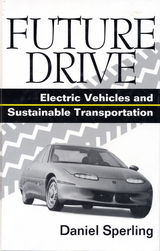 Future Drive: Electric Vehicles And Sustainable Transportation
Daniel Sperling; with Mark A. Delucchi, Patricia M. Davis, and A. F. Burke
Island Press, 1995 In Future Drive, Daniel Sperling addresses the adverse energy and environmental consequences of increased travel, and analyzes current initiatives to suggest strategies for creating a more environmentally benign system of transportation. Groundbreaking proposals are constructed around the idea of electric propulsion as the key to a sustainable transportation and energy system. Other essential elements include the ideas that: - improving technology holds more promise than large-scale behavior modification
- technology initiatives must be matched with regulatory and policy initiatives
- government intervention should be flexible and incentive-based, but should also embrace selective technology-forcing measures
- more diversity and experimentation is needed with regard to vehicles and energy technologies
Sperling evaluates past and current attempts to influence drivers and vehicle use, and articulates a clear and compelling vision of the future. He formulates a coherent and specific set of principles, strategies, and policies for redirecting the United States and other countries onto a new sustainable pathway.
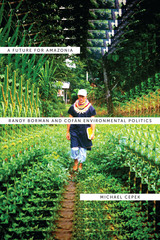 A Future for Amazonia: Randy Borman and Cofán Environmental Politics
By Michael Cepek
University of Texas Press, 2012 Blending ethnography with a fascinating personal story, A Future for Amazonia is an account of a political movement that arose in the early 1990s in response to decades of attacks on the lands and peoples of eastern Ecuador, one of the world’s most culturally and biologically diverse places. After generations of ruin at the hands of colonizing farmers, transnational oil companies, and Colombian armed factions, the indigenous Cofán people and their rain forest territory faced imminent jeopardy. In a surprising turn of events, the Cofán chose Randy Borman, a man of Euro-American descent, to lead their efforts to overcome the crisis that confronted them. Drawing on three years of ethnographic research, A Future for Amazonia begins by tracing the contours of Cofán society and Borman’s place within it. Borman, a blue-eyed, white-skinned child of North American missionary-linguists, was raised in a Cofán community and gradually came to share the identity of his adoptive nation. He became a global media phenomenon and forged creative partnerships between Cofán communities, conservationist organizations, Western scientists, and the Ecuadorian state. The result was a collective mobilization that transformed the Cofán nation in unprecedented ways, providing them with political power, scientific expertise, and a new role as ambitious caretakers of more than one million acres of forest. Challenging simplistic notions of identity, indigeneity, and inevitable ecological destruction, A Future for Amazonia charts an inspiring course for environmental politics in the twenty-first century.
 A Future for Marxism?: Althusser, the Analytical Turn and the Revival of Socialist Theory
Andrew Levine
Pluto Press, 2003 Not long ago, Marxist philosophy flourished. Yet in recent years theorists have turned away from Marxism. This book aims to revive Marxist theory, and show how it offers a rich foundation for radical socialist thinking in the forseeable future.
To do this, Andrew Levine examines two recent departures in Marxist thought -- Althusserian and Analytical Marxism. The former is currently defunct; the latter, very nearly so. He assesses the shortcomings of each, while emphasising their considerable, and still timely, merits. The discussion is framed against an analysis of socialism's place in the political life of the past two centuries. Levine assesses the apparent historical defeat of the Left generally since the consolidation of the Reagan-Thatcher era and speculates on current signs of renewal.
He argues that both Althusserian and analytical Marxism represent new and deeply important philosophical departures within the Marxist tradition as they force a rethinking of Marxism's scientific and political project. For all their differences in style and substance, these strains of Marxist thought share important thematic and sociological features and Levine concludes that both traditions provide a legacy upon which a revived Left can build.
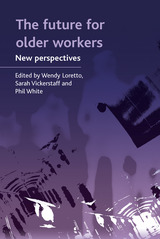 The Future for Older Workers: New Perspectives
Edited by Wendy Loretto, Sarah Vickerstaff, and Philip J. White
Bristol University Press, 2007 Across the world governments in mature industrial and post-industrial economies are concerned about the ageing population. Dealing directly and exclusively with the issue of older workers, this book brings together up-to-the minute research findings by many of the leading researchers and writers in the field. The authors address key issues that will influence public policy in the UK and beyond, including:·[vbTab]What do workers over 50 want: the opportunity to retire early, to retire gradually or to carry on working past state pension ages?·[vbTab]What impact will an ageing workforce have on employer policies towards recruitment, training, career management and retirement?·[vbTab]How will the government promote the benefits of extending working lives, and what supports will older workers and their employers need from the government's pension, taxation and benefits regimes?The duration and quality of working lives and the timing and circumstances of retirement are of growing concern, especially in those cases where employers' demands and imperatives clash with employees' wishes. The contributions in this volume focus upon various measures taken by the state and employers to foster the employment of older workers in Britain, mainland Europe, the US and Japan. The book is aimed at academics, students, policy makers and other professionals (such as training managers, HR professionals and trade unionists) interested in contemporary issues within social policy, the sociology of ageing, and human resource and diversity management. It will also be of interest to older workers themselves.
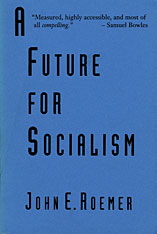 A Future for Socialism
John E. Roemer
Harvard University Press, 1994 Many people point to recent events—the collapse of the Soviet Union, the electoral defeat of the Sandinistas—as proof that capitalism has triumphed over socialism once and for all. In A Future for Socialism, a noted economist argues that socialism is not dead but merely in need of modernizing. John Roemer believes that the hallmark of socialism is egalitarianism—equality of opportunity for self-realization and welfare, for political influence, and for social status—and he reminds us that capitalist societies face increasingly difficult problems of poverty and social inequality. Reenergizing a debate that began with Oskar Lange and Friedrich Hayek in the late 1930s, he brings to important questions of political economy a new level of sophistication in line with contemporary theories of justice and equality.
Roemer sees the solution of the principal-agent problem as the key to developing a decentralized market-socialist economy. This would be capable of maintaining efficiency and technological innovation while supporting a substantively more equal distribution of income than is achieved in capitalist economies. Roemer defends his views against skeptics on the right, who believe that efficiency and innovation are incompatible with egalitarianism, and skeptics on the left, who believe that socialism is incompatible with markets.
Because of its interdisciplinary approach, A Future for Socialism will appeal to a general social science audience, including economists, political scientists, sociologists, and political philosophers. It is also accessible to the interested reader.
 Future Forward: The Rise and Fall of a Thai Political Party
Duncan McCargo and Anyarat Chattharakul
National University of Singapore Press, 2020 Future Forward deals with a remarkable phenomenon in Thailand's recent politics: the rise of a new party led by Thanathorn Juangroongruankit, a wealthy, charismatic politician who upended conventional understandings of how elections work in the country. One year after Future Forward was founded, it became the third largest party in parliament. Another year on, it was summarily dissolved by the Constitutional Court. This is the first book to examine the most interesting new force to emerge in Thai politics for two decades, one also exploring the wider dynamics of political leadership, party formation and voter behaviour in a society where popular participation was largely suppressed after the 2014 military coup. Based on exclusive interviews with party leaders and a wide range of Thai-language sources, it examines how Future Forward succeeded in mobilising so much electoral support, whilst also arousing intense hostility from the conservative forces demanding its dissolution.
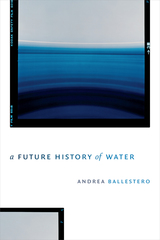 A Future History of Water
Andrea Ballestero
Duke University Press, 2019 Based on fieldwork among state officials, NGOs, politicians, and activists in Costa Rica and Brazil, A Future History of Water traces the unspectacular work necessary to make water access a human right and a human right something different from a commodity. Andrea Ballestero shows how these ephemeral distinctions are made through four technolegal devices—formula, index, list and pact. She argues that what is at stake in these devices is not the making of a distinct future but what counts as the future in the first place. A Future History of Water is an ethnographically rich and conceptually charged journey into ant-filled water meters, fantastical water taxonomies, promises captured on slips of paper, and statistical maneuvers that dissolve the human of human rights. Ultimately, Ballestero demonstrates what happens when instead of trying to fix its meaning, we make water’s changing form the precondition of our analyses.
The Future is Mestizo: Life Where Culture Meet, Revised Edition
Virgilio Elizondo
University Press of Colorado, 2000 Twelve years after it was first published, The Future is Mestizo is now updated and revised with a new foreword, introduction, and epilogue. This book speaks to the largest demographic change in twentieth-century United States history—the Latinization of music, religion, and culture.
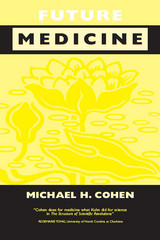 Future Medicine: Ethical Dilemmas, Regulatory Challenges, and Therapeutic Pathways to Health Care and Healing in Human Transformation
Michael H. Cohen
University of Michigan Press, 2002 Future Medicine is an investigation into the clinical, legal, ethical, and regulatory changes occurring in our health care system as a result of the developing field of Complimentary and Alternative Medicine (CAM). Here Michael H. Cohen describes the likely evolution of the legal system and the health care system at the crossroads of developments in the way human beings care for body, mind, emotions, environment, and soul.
Through the use of fascinating and relevant case studies, Cohen presents stimulating questions that will challenge academics, intellectuals, and all those interested in the future of health care. In concise, evocative strokes, the book lays the foundation for a novel synthesis of ideas from such diverse disciplines as transpersonal psychology, political philosophy, and bioethics. Providing an exploration of regulatory conundrums faced by many healing professionals, Cohen articulates the value of expanding our concept of health care regulation to consider not only goals of fraud control and quality assurance, but also health care freedom, integration of global medicine, and human transformation.
Future Medicine provides a fair-minded, illuminating, and honest discussion that will interest hospice workers, pastoral counselors, and psychotherapists, as well as bioethicists, physicians and allied health care providers, complementary and alternative medical providers (such as chiropractors, acupuncturists, naturopaths, massage therapists, homeopaths, and herbalists), and attorneys, hospital administrators, health care executives, and government health care workers.
Michael H. Cohen is Director for Legal Programs, the Center for Research and Education in Complementary and Integrative Medical Therapies, Beth Israel Deaconess Medical Center, Harvard Medical School.
Future Mobile Networks: 3G and beyond
Alan Clapton
The Institution of Engineering and Technology, 2001 This book explores the future of mobile communications networks from 3G trials, developments and products, to what will follow in the future. The increasing demands for services and higher quality continue to drive forward the technological capabilities. The implications of increasing mobile customer numbers on a global scale are investigated, as well as the convergence of mobile and the Internet, which, it is envisaged, will provide the next massive growth burst to the mobile market and 3G networks.
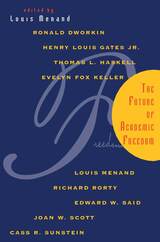 The Future of Academic Freedom
Edited by Louis Menand
University of Chicago Press, 1996 At the bottom of every controversy embroiling the university today—from debates over hate-speech codes to the reorganization of the academy as a multicultural institution—is the concept of academic freedom. But academic freedom is almost never mentioned in these debates. Now nine leading academics, including Henry Louis Gates, Jr., Edward Said, Richard Rorty, and Joan W. Scott, consider the problems confronting the American University in terms of their effect on the future of academic freedom.
"Louis Menand has assembled The Future of Academic Freedom to better define and delineate what should and should not happen within our colleges and universities. . . . The whole extremely learned yet accessible debate exploits the freedoms it extols, tackling sensitive subjects such as ethnicity and ethics head-on."—Publishers Weekly
"The essays are not only sharp, elegant and lucid, but extremely well-informed about the history of American battles over academic freedom."—Alan Ryan, Times Higher Education Supplement
"[A] superb inquiry into some of the most vexing and significant issues in higher education today."—Zachary Karabell, Boston Book Review
The Future of Alienation
Richard Schacht
University of Illinois Press, 1994 Richard Schacht has long argued that alienation theory can shed important light upon aspects of life in the modern world and upon our human predicament. The essays here call for a rethinking of a variety of forms of alienation in light of contemporary dynamics and a clearer understanding of the dialectic of human selfhood and social participation.
They call for a renewed interest in alienation theory; they counter the myth that, with the collapse of the Soviet empire, Marx's thinking has been "refuted"; and they argue for an enhanced sensitivity to the problem of how we describe, interpret, and evaluate the world around us in light of the complexity and diversity that alienation theory reveals.
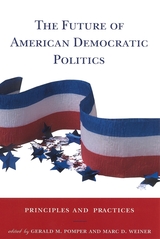 The Future of American Democratic Politics: Principles and Practices
Pomper, Gerald M
Rutgers University Press, 2003 In this book, fifteen major scholars assess the current state of American democracy, offering a spirited dialogue on the future of democratic politics. Contributors focus on three principles fundamental to democracyequality, liberty, and participation. They examine these principles within the context of the basic institutions of American democracy: Congress and the state legislatures, the president, political parties, interest groups, and the Supreme Court. They raise questions regarding the checks and balances among formal governmental institutions as well as the role of political parties and interest groups. Topics discussed include the incomplete mobilization of the electorate, the debates over campaign finance reform and term limits, the Supreme Courts activist role in the Florida recount, the dangers of teledemocracy and state initiatives, the separation of political participation from residential location, "identity politics," the clash of "negative" and "positive" liberty, and the prospects for personal freedom in an era of terrorist threats. This timely collection covers the issues relevant to the future of American democracy today not only for lawmakers, students, and historians, but for any concerned citizen.
 The Future of an Illusion: Film, Feminism, and Psychoanalysis
Constance Penley
University of Minnesota Press, 1989
The Future of an Illusion was first published in 1989. Minnesota Archive Editions uses digital technology to make long-unavailable books once again accessible, and are published unaltered from the original University of Minnesota Press editions.
The Future of an Illusion documents the pivotal role Constance Penley has played in the development of feminist film theory. Penley analyzes the primary movements that have shaped the field: the conjunction of feminism, film theory, and psychoanalysis, and the inherent debates surrounding the politics of women and representation. These debates center on the position of women in the classical Hollywood narrative, the construction of the spectator's desire in pornography and eroticism, and the implicitly male bias in psychoanalytically oriented film theory. Essential to anyone studying the sexual policies of representation, The Future of an Illusion ranges from avant-garde films to video, popular cinema, television, literature, and critical and cultural theory.
Constance Penley is associate professor of English and film studies at the University of Rochester. A co-editor of the journal Camera Obscura,she is the editor of Feminism and Film Theory.
Future of Art in a Digital Age: From Hellenistic to Hebraic Consciousness
Mel Alexenberg
Intellect Books, 2006 This work develops the thesis that the transition from pre-modernism to postmodernism in art of the digital age represents a paradigm shift from the Hellenistic to the Hebraic roots of Western culture. Semiotic and morphological analysis of art and visual culture demonstrate the contemporary confluence between the deep structure of Hebraic consciousness and new directions in art that arise along the interface between scientific inquiry, digital technologies, and multicultural expressions. Complementing these two analytic methodologies, alternative methodologies of kabbalah and halakhah provide postmodern methods for extending into digital age art forms. Exemplary artworks are described in the text and illustrated with photographs.
The Future of Art in a Postdigital Age: From Hellenistic to Hebraic Consciousness - Second Edition
Mel Alexenberg
Intellect Books, 2011 In The Future of Art in a Postdigital Age, artist and educator Mel Alexenberg offers a vision of a postdigital future that reveals a paradigm shift from the Hellenistic to the Hebraic roots of Western culture. He ventures beyond the digital to explore postdigital perspectives rising from creative encounters among art, science, technology, and human consciousness. The interrelationships between these perspectives demonstrate the confluence between postdigital art and the dynamic, Jewish structure of consciousness. Alexenberg’s pioneering artwork––a fusion of spiritual and technological realms––exemplifies the theoretical thesis of this investigation into interactive and collaborative forms that imaginatively envisages the vast potential of art in a postdigital future.
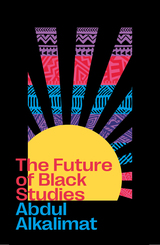 The Future of Black Studies
Abdul
Pluto Press, 2022 At a turning point for the growing field of Black Studies, one of its founders looks to its future
'A timely, future-oriented and necessary contribution which provides clarity to the multivalent tendencies in this field' - Carole Boyce Davies
The marginalization of Black voices from the academy is a problem in the Western world. But Black Studies, where it exists, is a powerful, boundary-pushing discipline, grown out of struggle and community action. Here, Abdul Alkalimat, one of the founders of Black Studies in the US, presents a reimagining of the future trends in the study of the Black experience.
Taking Marxism and Black Experientialism, Afro-Futurist and Diaspora frameworks, he projects a radical future for the discipline at this time of social crisis. Choosing cornerstones of culture, such as the music of Sun Ra, the movie Black Panther and the writer Octavia Butler, he looks at the trajectory of Black liberation thought since slavery, including new research on the rise in the comparative study of Black people all over the world.
Turning to look at how digital tools enhance the study of the discipline, this book is a powerful read that will inform and inspire students and activists.
 The Future of Business Journalism: Why It Matters for Wall Street and Main Street
Chris Roush. Foreword by David Callaway
Georgetown University Press, 2022 An eye-opening account of how the information gap in business journalism is eroding civic life and impacting the economy––and how we can fix it Business owners, consumers, and employees have long relied on the news to make financial decisions—what to buy, who to hire, and what products to sell. In the twenty-first century, that news has shifted. Only the big businesses and executives can afford expensive subscriptions, while most consumers and small business owners are left scrambling to find the news they need to succeed and thrive. The Future of Business Journalism explores how the field evolved into this divide and offers solutions on how business journalism can once again provide the stories and content that a broad society needs. In The Future of Business Journalism, veteran business journalist and professor Chris Roush explains the causes, reveals the consequences, and offers potential solutions to this pressing problem. Roush delves into how the crisis occurred, from the disintegration of the once-strong relationship between businesses and media to the media’s focus on national coverage at the expense of local news. He reveals how these trends result in major “coverage deserts.” Roush’s proposal for a way forward shows how businesses, journalists, and media can work together to support the economic and financial literacy needed for an informed citizenry. He recommends that media organizations take advantage of technological innovations to provide better business news content, suggests that journalism programs require budding reporters to take more business courses, and encourages businesses to fund journalism school programs. This insightful overview of the current state of business journalism reveals its strengths and weaknesses and shows how Main Street can regain access to the news it needs.
 The Future of Child Protection: How to Break the Cycle of Abuse and Neglect
Jane Waldfogel
Harvard University Press, 1998 Lisa Steinberg. Elisa Izquierdo. Lance Helms. These are just a few of the names drawn from recent headlines, revealing cases of horrendous child abuse and neglect. Such cases have led to a crisis of confidence in the current child protective services (CPS) system, and to frequent calls for reform.
The public is right to be concerned, shows Jane Waldfogel, but many perceptions of the CPS system and the problems it is designed to alleviate are inaccurate. This book goes beyond the headlines, using historical, comparative, and specific case data to formulate a new approach to protecting children.
Currently, Waldfogel argues, the CPS system is overwhelmed by referrals. As a result, neither high-risk nor low-risk families are adequately served.
Waldfogel examines the underlying assumptions of CPS, compares the U.S. record with those of Britain, Canada, and Australia, and offers a "new paradigm" in which CPS joins with other public and private partners to provide a differential response to the broad range of children in need of protection. She highlights reforms underway in several states and in Britain.
This book's analytical clarity and straightforward policy recommendations will make it mandatory reading for policymakers, practitioners, and others interested in the future of child protection.
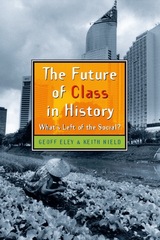 The Future of Class in History: What's Left of the Social?
Geoff Eley and Keith Nield
University of Michigan Press, 2007 Unifying concepts are essential when studying history. They provide students and scholars with ways to organize their thoughts, research, and writings. However, these concepts are also the focus of myriad conflicts within the field. Social history has experienced more than its share of such conflicts since its inception some forty years ago. In recent times the fields of “the social” and of “culture” have sometimes been presented as mutually exclusive and even hostile. Once again, conceptual innovation in history has been cast as a closure by which the new drives out the old: in this case, cultural history radically displacing social history. The Future of Class in History analyzes the effect of the conflict that followed the “turn to culture” in historical work by examining the use of class and demonstrates how practitioners in multiple fields can collaborate to produce the highest quality scholarship. “Offers new ways of thinking about ‘class’ and ‘society’ in a world in which such categories have been radically called into question.” —Sherry Ortner, University of California, Los Angeles “Brilliantly charts social history’s past achievement, present dilemma, and future promise in a work distinguished by intellectual openness and generosity.” —James A. Epstein, Vanderbilt University “Eley and Nield seek to rescue the deluded follower of social history from the enormous condescension of the cultural turn. They succeed admirably, making the case for a new hybrid socio-cultural history.”
—Donald Reid, University of North Carolina at Chapel Hill “This terrific double act has once again produced a text that demands to be read by all those tired of the juxtaposition of social and cultural histories and still interested in the problematic of class and the politics of its past and present.” —James Vernon, University of California, Berkeley “Eley and Nield tackle a contentious debate with a gracious plea for collaboration. Their strong desire to get past the ‘culture wars’ and to engage social and cultural historians in fruitful dialogue is a welcome move, stylishly executed.”
—Philippa Levine, University of Southern California Geoff Eley is Professor of History at the University of Michigan. Keith Nield is Professor Emeritus of History at the University of Hull.
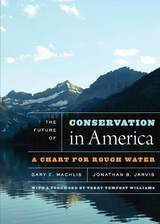 The Future of Conservation in America: A Chart for Rough Water
Gary E. Machlis and Jonathan B. Jarvis
University of Chicago Press, 2018 This is a turbulent time for the conservation of America’s natural and cultural heritage. From the current assaults on environmental protection to the threats of climate change, biodiversity loss, and disparity of environmental justice, the challenges facing the conservation movement are both immediate and long term. In this time of uncertainty, we need a clear and compelling guide for the future of conservation in America, a declaration to inspire the next generation of conservation leaders. This is that guide—what the authors describe as “a chart for rough water.”
Written by the first scientist appointed as science advisor to the director of the National Park Service and the eighteenth director of the National Park Service, this is a candid, passionate, and ultimately hopeful book. The authors describe a unified vision of conservation that binds nature protection, historical preservation, sustainability, public health, civil rights and social justice, and science into common cause—and offer real-world strategies for progress. To be read, pondered, debated, and often revisited, The Future of Conservation in America is destined to be a touchstone for the conservation movement in the decades ahead.
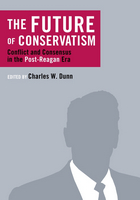 The Future of Conservatism: Conflict and Consensus in the Post-Reagan Era
Charles W. Dunn
Intercollegiate Studies Institute, 2007 Once on the wings of the American political stage, conservatism now plays a leading role in public life, thanks largely to the dynamic legacy of Ronald Reagan. But despite conservatism’s emergence as a powerful political force in the last several decades, misunderstandings abound about its meaning and nature—economically, internationally, philosophically, politically, religiously, and socially. In examining these misunderstandings, The Future of American Conservatism: Consensus and Conflict in the Post-Reagan Era reveals the forces that unite, and the tensions that divide, conservatives today.
Edited by noted Reagan scholar Charles W. Dunn, this collection casts conservatism as a collage of complexity that defies easy characterization. Although it is commonly considered an ideology, many of conservatism’s foremost intellectuals dispute this notion. Although it is thought to embody a standard set of principles, its principles frequently conflict. Although many leading intellectuals, liberal and conservative, believe that conservatism lacks a significant tradition in America, it has contributed more to American life than the credit lines indicate. And although it is usually thought to create homogeneity among its adherents, in truth conservatism is marked by a great deal of heterogeneity in both its adherents and its ideas.
In fact, conservatism’s complexity may well be its strength—or so the essays gathered here suggest. In painting a bright picture of the prospects for conservatives, The Future of American Conservatism is a timely and thought-provoking volume.
The Future of Cultural Analysis: A Critical Inquiry
Murat Aydemir
Amsterdam University Press, 2025 Across the humanities and the social sciences, “cultural analysis” is a vibrant research practice. Since its introduction in the 1990s, its main principles have remained largely the same: interdisciplinarity, political urgency, a heuristic use of concepts, the detailed analysis of objects of culture, and an awareness of the scholar’s situatedness in the present. But is the practice still suited to the spiraling of social, political, and environmental crises that mark our time? Drawing on experiences in research, teaching, activism, and the creative arts, contributors explore what cultural analysis was back then, what it is now, and what it may be by 2034. In a shifting conjuncture, contributors strike notes of discomfort, defiance, and irony—as well as a renewed sense of urgency and care.
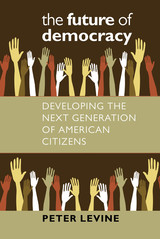 The Future of Democracy: Developing the Next Generation of American Citizens
Peter Levine
University Press of New England, 2015 We need young people to be civically engaged in order to define and address public problems. Their participation is important for democracy, for institutions such as schools, and for young people themselves, who are more likely to succeed in life if they are engaged in their communities. In The Future of Democracy, Peter Levine, scholar and practitioner, sounds the alarm: in recent years, young Americans have become dangerously less engaged. They are tolerant, patriotic, and idealistic, and some have invented such novel and impressive forms of civic engagement, as blogs, “buycott” movements, and transnational youth networks. But most lack the skills and opportunities they need to participate in politics or address public problems. Levine’s timely manifesto clearly explains the causes, symptoms, and repercussions of this damaging trend, and, most importantly, the means whereby America can confront and reverse it. Levine demonstrates how to change young people’s civic attitudes, skills, and knowledge and, equally importantly, to reform our institutions so that civic engagement is rewarding and effective. We must both prepare citizens for politics and improve politics for citizens.
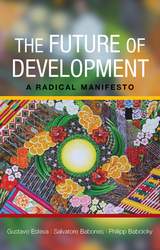 The Future of Development: A Radical Manifesto
Gustavo Esteva, Salvatore J.Babones, and Philipp Babcicky
Bristol University Press, 2013 In his 1949 inaugural address, President Harry S. Truman heralded the era of international development, a “worldwide effort for the achievement of peace, plenty, and freedom” that would aim to “greatly increase the industrial activity in other nations and. . . . raise substantially their standards of living.” At the time, more than half of the world’s population lived in areas defined as underdeveloped; today, that figure surprisingly remains the same. Arguing that such persistent stagnation resulted partly from poor comprehension of the terms “developed” and “underdeveloped,” this provocative book revises our understanding of these fraught concepts.
Demystifying the statistics that international organizations use to measure development, the authors introduce the alternative concept of buen vivir: a state of living well. They contend that everyone on the planet can achieve this state, but only if we all begin living as communities rather than individuals and nurture our respective commons. With their unique take on a famously difficult issue, they offer new hope for the future of development—and of humankind.
The Future of Digital Surveillance: Why Digital Monitoring Will Never Lose Its Appeal in a World of Algorithm-Driven AI
Yong Jin Park
University of Michigan Press, 2021 Are humans hard-wired to make good decisions about managing their privacy in an increasingly public world? Or are we helpless victims of surveillance through our use of invasive digital media? Exploring the chasm between the tyranny of surveillance and the ideal of privacy, this book traces the origins of personal data collection in digital technologies including artificial intelligence (AI) embedded in social network sites, search engines, mobile apps, the web, and email. The Future of Digital Surveillance argues against a technologically deterministic view—digital technologies by nature do not cause surveillance. Instead, the shaping of surveillance technologies is embedded in a complex set of individual psychology, institutional behaviors, and policy principles.
 The Future Of Disabled Liberal Society: An Ethical Analysis
Hans S. Reinders
University of Notre Dame Press, 2000 The Future of the Disabled in Liberal Society questions developments in human genetic research from the perspective of persons with mental disabilities and their families. Hans S. Reinders argues that when we use terms such as "disease" and "defect" to describe conditions that genetic engineering might well eliminate, we may also be assuming that disabled lives are deplorable and horrific. Reinders points out that the possibility of preventing disabled lives is at odds with our commitment to the full inclusion of disabled citizens in society. The tension between these different perspectives is of concern to all of us as genetic testing procedures proliferate. Reinders warns that preventative uses of human genetics might even become a threat to the social security and welfare benefits that help support disabled persons and their families.
Reinders also argues that this conflict cannot be resolved or controlled on the level of public morality. Because a liberal society makes a commitment to individual freedom and choice, its members can consider the diagnostic and therapeutic uses of human genetics as options available to individual citizens. A liberal society will defend reproductive freedom as a matter of principle. Citizens may select their offspring in accord with their own personal values. Reinders concludes that the future of the mentally disabled in liberal society will depend on the strength of our moral convictions about the value of human life, rather than on the protective force of liberal morality.
One of the most important aspects of this book is Reinder's attention to parents who have come to see the task of raising a disabled child as an enriching experience. These are people who change their conceptions of success and control and, therefore, their conceptions of themselves. They come to value their disabled children for what they have to give. Even though disabled children and disabled adults present parents and society with real challenges, the rewards are just as real.
This powerful critique of contemporary bioethics is sure to become required reading for those interested in human development, special education, ethics, philosophy, and theology.
Hans S. Reinders is the Willem van der Bergh Professor of Ethics and Mental Disability at the Vrije Universiteit in Amsterdam.
"This is a challenging and very important book. As Hans Reinders shows in The Future of the Disabled in Liberal Society, the meaning of life and the place of the disabled cannot adequately be understood within the liberal cosmopolitan morality; at best, it gives us mixed messages. It encourages a reproductive ethos supporting prenatal diagnosis and selective abortion, while it breaks down cultural and institutional barriers so as to aid the disabled. A liberal society requires what it cannot nurture but only protect: the commitment to share one's life with another. This powerful volume takes us to foundational tensions within our contemporary secular morality."--H. Tristram Engelhardt, Jr., Ph.D., M.D., Professor, Center for Medical Ethics and Health Policy, Baylor College of Medicine, Rice University
"Reinders goes beyond many of his contemporaries by challenging the reader to question the basic meaning of life. He shifts the discussion from the medical or defect paradigm of disability to the paradigm of normalization where potential is emphasized and valued. Given the challenges being posed by the almost exponential pace of new discoveries emerging from the human genome project, this is a most timely publication." --Trevor R. Parmenter, Ph.D., President, International Association for the Scientific Study of Intellectual Disabilities
Reviews
"In The Future of the Disabled in Liberal Society, he subtly explores how genetic-testing technologies--ones that are already widely used and others that are just around the corner--adversely affect the standing of the disabled in liberal states. A professor of ethics, Reinders has written an intellectually challenging work of philosophy and social policy. [Reinders] has done a great service by demonstrating how even a seemingly benign aspect of the high-tech revolution, genetic testing, will have unintended consequences none of us can greet with equanimity." --Policy Review
"[T]he book as a whole will offer to advanced undergraduates an engaging and challenging introduction to some of the most influential ethical thinkers of our time. Very highly recommended…." --Choice, October 2001 CHOICE 2001 Outstanding Academic Title
"[A] sophisticated and welcome contribution to what the author calls the continuing debate concerning the strengths and weaknesses of liberal morality that dominates contemporary society. This is a sobering book." --Commonweal
"[A] well-reasoned examination…." --Theological Studies
"By demonstration the inherent paradoxes in liberal approaches to the disabled, he effectively reveals potential policy limitations that may threaten the social services available to the mentally disabled." --Religious Studies Review
"...this book provides a rich resource for understanding thinking in contemporary secular bioethics.... Reinders's work greatly helps one to understand the reasoning and application of liberal secular philosophy and details its shortcomings." --The National Catholic Bioethics Quarterly
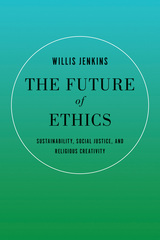 The Future of Ethics: Sustainability, Social Justice, and Religious Creativity
Willis Jenkins
Georgetown University Press, 2013 The Future of Ethics interprets the big questions of sustainability and social justice through the practical problems arising from humanity’s increasing power over basic systems of life. What does climate change mean for our obligations to future generations? How can the sciences work with pluralist cultures in ways that will help societies learn from ecological change? Traditional religious ethics examines texts and traditions and highlights principles and virtuous behaviors that can apply to particular issues. Willis Jenkins develops lines of practical inquiry through "prophetic pragmatism," an approach to ethics that begins with concrete problems and adapts to changing circumstances. This brand of pragmatism takes its cues from liberationist theology, with its emphasis on how individuals and communities actually cope with overwhelming problems. Can religious communities make a difference when dealing with these issues? By integrating environmental sciences and theological ethics into problem-based engagements with philosophy, economics, and other disciplines, Jenkins illustrates the wide understanding and moral creativity needed to live well in the new conditions of human power. He shows the significance of religious thought to the development of interdisciplinary responses to sustainability issues and how this calls for a new style of religious ethics.
 The Future of Extended Deterrence: The United States, NATO, and Beyond
Stéfanie von Hlatky and Andreas Wenger, Editors
Georgetown University Press, 2015 Are NATO’s mutual security commitments strong enough today to deter all adversaries? Is the nuclear umbrella as credible as it was during the Cold War? Backed by the full range of US and allied military capabilities, NATO’s mutual defense treaty has been enormously successful, but today’s commitments are strained by military budget cuts and antinuclear sentiment. The United States has also shifted its focus away from European security during the wars in Afghanistan and Iraq and more recently with the Asia rebalance. Will a resurgent Russia change this? The Future of Extended Deterrence brings together experts and scholars from the policy and academic worlds to provide a theoretically rich and detailed analysis of post–Cold War nuclear weapons policy, nuclear deterrence, alliance commitments, nonproliferation, and missile defense in NATO but with implications far beyond. The contributors analyze not only American policy and ideas but also the ways NATO members interpret their own continued political and strategic role in the alliance. In-depth and multifaceted, The Future of Extended Deterrence is an essential resource for policy practitioners and scholars of nuclear deterrence, arms control, missile defense, and the NATO alliance.
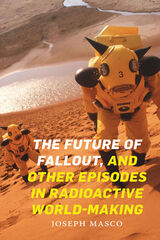 The Future of Fallout, and Other Episodes in Radioactive World-Making
Joseph Masco
Duke University Press, 2020 In The Future of Fallout, and Other Episodes in Radioactive World-Making Joseph Masco examines the strange American intimacy with and commitment to existential danger. Tracking the simultaneous production of nuclear emergency and climate disruption since 1945, he focuses on the psychosocial accommodations as well as the technological revolutions that have produced these linked planetary-scale disasters. Masco assesses the memory practices, visual culture, concepts of danger, and toxic practices that, in combination, have generated a U.S. national security culture that promises ever more safety and comfort in everyday life but does so only by generating and deferring a vast range of violences into the collective future. Interrogating how this existential lag (i.e., the material and conceptual fallout of the twentieth century in the form of nuclear weapons and petrochemical capitalism) informs life in the twenty-first century, Masco identifies key moments when other futures were still possible and seeks to activate an alternative, postnational security political imaginary in support of collective life today.
 The Future of Family Farms: Practical Farmers' Legacy Letters Project
Teresa Opheim
University of Iowa Press, 2016 A monumental transfer of farmland is occurring in the United States. The average American farmer is fifty-eight years old, and the 40 percent of farmland owners who lease their land to others are even older: sixty-six on average. Five times as many farmers are over sixty-five as are under thirty-five. What will happen to this land? Who will own it? What if one child wants to farm but can't afford to buy out the nonfarming siblings? What if keeping the farm in the family means foregoing the significant profits that could be earned from selling it? These sometimes painful and divisive questions confront many farmers and farmland owners today. How they answer them will shape their families and the land for generations to come.
The Farm Legacy Letters project, developed by the member-driven nonprofit Practical Farmers of Iowa, is designed to help farmers and farmland owners think about their farm’s future and talk about it with their families. An essential complement to handbooks on business succession, this book gathers the letters and stories of midwestern families about the land they cherish—how they acquired it, what they treasure most about it, and their hopes for its future. Some of the writers descend from families who have owned a particular patch of the earth since the 1800s, while others became farmland owners more recently—one as recently as 2015. Some are no longer farmland owners at all, because—after careful thought about what mattered most to them—they sold their land to the next generation of farmers.
All of these writers hope that, by sharing their farmland legacies, they will encourage others to ponder and then write about the histories, accomplishments, challenges, and hopes for their farmland for the generations who come after they are gone.
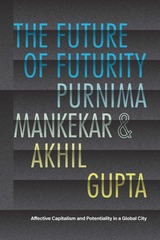 The Future of Futurity: Affective Capitalism and Potentiality in a Global City
Purnima Mankekar and Akhil Gupta
Duke University Press, 2025 In The Future of Futurity, Purnima Mankekar and Akhil Gupta examine the lives and experiences of call center agents in India’s business process outsourcing (BPO) industry, who live in Bengaluru and work for customers in the Global North. Mankekar and Gupta show how futurity—an affective-temporal potentiality and mode of being that emphasizes the unfolding of time—enables BPO workers to strive for hopeful futures despite their experiences of growing inequality, volatility, and violence. Drawing on long-term fieldwork with managers, owners, and workers of BPO companies, the authors explore how workers find pathways for navigating a globalized world and for imagining their futures in it. They point to the heterogeneous lives, yearnings, and anxieties of BPO workers, foregrounding the disjunctions and conjunctions between labor, corporeality, intimacy, family life, and mobility. Mankekar and Gupta show how workers’ daily lives and imaginings of the future point to the relationships between futurity, capital, and technology as well as futurity’s imbrications with contemporary racial capitalism. In so doing, the authors insist on the transformative potential of futurity even in conditions of extreme precarity.
 The Future of Health Policy
Victor Fuchs
Harvard University Press, 1993 Americans are understandably concerned about the runaway costs of medical care and the fact that one citizen out of seven is without health insurance coverage. Solving these problems is a top priority for the Clinton administration, but as Victor Fuchs shows, the task is enormously complex. In this book Fuchs, America's foremost health economist, provides the reader with the necessary concepts, facts, and analyses to comprehend the complicated issues of health policy. He shows why health care reform that benefits society as a whole will unavoidably burden certain individuals and groups.
Fuchs addresses such central questions as cost containment, managed competition, technology assessment, poverty and health, children's health, and national health insurance. The future of U.S. health policy, he argues, is tightly linked to three basic questions; First, how can we disengage health insurance from employment? Second, how can we tame technological change in health care? And finally how can we cope with the runaway medical costs of an aging society?
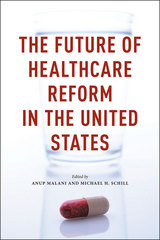 The Future of Healthcare Reform in the United States
Edited by Anup Malani and Michael H. Schill
University of Chicago Press, 2015 In the years since the passage of the Patient Protection and Affordable Care Act (PPACA, or, colloquially, Obamacare), most of the discussion about it has been political. But as the politics fade and the law's many complex provisions take effect, a much more interesting question begins to emerge: How will the law affect the American health care regime in the coming years and decades?
This book brings together fourteen leading scholars from the fields of law, economics, medicine, and public health to answer that question. Taking discipline-specific views, they offer their analyses and predictions for the future of health care reform. By turns thought-provoking, counterintuitive, and even contradictory, the essays together cover the landscape of positions on the PPACA's prospects. Some see efficiency growth and moderating prices; others fear a strangling bureaucracy and spiraling costs. The result is a deeply informed, richly substantive discussion that will trouble settled positions and lay the groundwork for analysis and assessment as the law's effects begin to become clear.
 The Future of Humanity: From Global Civilization to Great Civilization
Zhouying Jin
Intellect Books, 2022 A study of topics connected to the future of mankind, with a particular emphasis on the economic, social, and geopolitical effects of the COVID-19 pandemic.
This book seeks to underscore the importance of dealing with our planet’s common crises—climate change, species extinction, land and food shortages, water pollution, and many more global catastrophes. In the face of these calamities, this book calls for the transformation of human development model and civilization paradigm: Promote the transformation from industrial civilization to global Civilization and then strive to realize the great civilization.
The far-reaching effects of the COVID-19 pandemic have gone beyond the fields of health, deeply impacting economic, social, and geopolitical affairs worldwide. The still-unfolding health crisis has forced many to rethink the axioms of what they know as “civilization.” In this book, Zhouying Jin contends that if the human beings who share the earth cannot guide the direction of technological innovation to create a more advanced human civilization, then they are doomed to move toward self-destruction. The Future of Humanity calls on human beings to prepare for the future by altering their destructive relationship with nature and abandoning people-centered thinking to promote an awakening of all mankind.
The Future of Humanity: Global Civilization and China's Rejuvenation
Zhouying Jin
Intellect Books, 2018 The Future of Humanity seeks to answer the question: “What kind of global civilization should human beings pursue and what do we have to do collectively?,” one a question that has preoccupied scholars, philosophers, and politicians for centuries. In doing so, the book tackles concepts as monumental as the keys to happiness, alien nonconventional intelligence, immortality, morality, and China’s possible role in bringing about a better worldjoining this global discussion.
To navigate these many and complex topics, Jin combines the spiritual insights of ancient Chinese thinkers with a deep respect for the accomplishments and discoveries of modern Western science, exploring and explaining her distinct vision for a what a better, global future civilization could be.
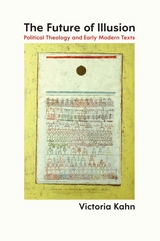 The Future of Illusion: Political Theology and Early Modern Texts
Victoria Kahn
University of Chicago Press, 2013 In recent years, the rise of fundamentalism and a related turn to religion in the humanities have led to a powerful resurgence of interest in the problem of political theology. In a critique of this contemporary fascination with the theological underpinnings of modern politics, Victoria Kahn proposes a return to secularism—whose origins she locates in the art, literature, and political theory of the early modern period—and argues in defense of literature and art as a force for secular liberal culture.
Kahn draws on theorists such as Carl Schmitt, Leo Strauss, Walter Benjamin, and Hannah Arendt and their readings of Shakespeare, Hobbes, Machiavelli, and Spinoza to illustrate that the dialogue between these modern and early modern figures can help us rethink the contemporary problem of political theology. Twentieth-century critics, she shows, saw the early modern period as a break from the older form of political theology that entailed the theological legitimization of the state. Rather, the period signaled a new emphasis on a secular notion of human agency and a new preoccupation with the ways art and fiction intersected the terrain of religion.
The Future of Literary Archives: Diasporic and Dispersed Collections at Risk
David C. Sutton
Arc Humanities Press, 2018 Literary archives differ from most other types of archival papers in that their locations are more diverse and difficult to predict. The essays collected in this book derive from the recent work of the Diasporic Literary Archives Network, whose focus on diaspora provides a philosophical framework which gives a highly original set of points of reference for the study of literary archives, including concepts such as the natural home, the appropriate location, exile, dissidence, fugitive existence, cultural hegemony, patrimony, heritage, and economic migration.
The Future of Medical Education
William G. Anlyan, M.D.
Duke University Press, 1973 The major recommendations and chapters of The Future of Moral Education can be divided into three categories: expansion of medical education's scope and responsibilities, basic conditions for progress in medical education, and medial education and the nation's health. The contributors all recognize their obligation to medical education's future as a societal endeavor to serve the nation's health needs.
 The Future of Memory: A History of Lossless Format Standards in the Moving Image Archive
Jimi Jones and Marek Jancovic
University of Illinois Press, 2025 A new generation of video standards promises lossless storage of digital objects for future generations. Jimi Jones and Marek Jancovic document the development and adoption of JPEG 2000, FFV1, MXF, and Matroska while investigating the social and material aspects of their design and the forces driving their journeys from niche to ubiquity. Drawing on interviews with archivists and developers, Jones and Jancovic reveal the archive as a dynamic space where deeply entrenched social practices produce disagreements but also resourceful collaborations. They contrast the unprecedented rise of archivist-driven standardization and controversies around non-standard technology with the historical dominance of the film and broadcast industries. Throughout, the authors clarify the role of tech companies, software developers, film pirates, hackers, and other players with poorly understood roles in the process. A timely look at the state of audiovisual preservation, The Future of Memory provides a history of recent innovations alongside a snapshot of a field in the midst of profound technological change.
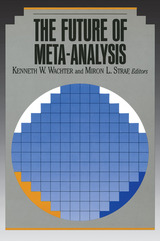 The Future of Meta-Analysis
Kenneth W. Wachter
Russell Sage Foundation, 1990 Scientific progress often begins with the difficult task of preparing informed, conclusive reviews of existing research. Since the 1970s, the traditional "subjective" approach to research reviewing in the social sciences has been challenged by a statistical alternative known as meta-analysis. Meta-analysis provides a principled method of distilling reliable generalizations from previous studies on a single topic, thereby providing a quantitative and objective background for future research. The Future of Meta-Analysis brings together expert researchers for an in-depth examination of this new methodology—not to promote a consensus view but rather to explore from several perspectives the theories, tensions, and concerns of meta-analysis, and to illustrate through concrete examples the rationale behind meta-analytic decisions. In a meta-analysis prepared especially for this volume, a statistician and a psychologist review the existing literature on aphasia treatment. In a second study, experts analyze six still-unpublished meta-analyses sponsored by the National Institute of Education to investigate the effects of school desegregation on the academic achievement of black children. This unique case study approach provides valuable discussion of the process of meta-analysis and of the current implications of meta-analysis for policy assessment. Prepared under the auspices of the National Research Council, The Future of Meta-Analysis presents a forum for leaders in this rapidly evolving field to discuss salient conceptual and technical issues and to offer a new theoretical framework, further methodological guidance, and statistical innovations that anticipate a future in which meta-analysis will play an even more effective and valuable role in social science research.
The Future of Mobility: Scenarios for China in 2030
Liisa Ecola
RAND Corporation, 2015 Researchers developed two scenarios to envision the future of mobility in China in 2030. Economic growth, the presence of constraints on vehicle ownership and driving, and environmental conditions differentiate the scenarios. By making potential long-term mobility futures more vivid, the team sought to help decisionmakers at different levels of government and in the private sector better anticipate and prepare for change.
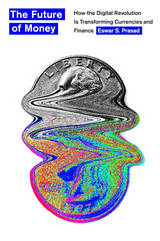 The Future of Money: How the Digital Revolution Is Transforming Currencies and Finance
Eswar S. Prasad
Harvard University Press, 2021 An Economist Best Book of the Year
A Financial Times Best Book of the Year
A Foreign Affairs Best Book of the Year
A ProMarket Best Political Economy Book of the Year
One of The Week’s Ten Best Business Books of the Year
A cutting-edge look at how accelerating financial change, from the end of cash to the rise of cryptocurrencies, will transform economies for better and worse.
We think we’ve seen financial innovation. We bank from laptops and buy coffee with the wave of a phone. But these are minor miracles compared with the dizzying experiments now underway around the globe, as businesses and governments alike embrace the possibilities of new financial technologies. As Eswar Prasad explains, the world of finance is at the threshold of major disruption that will affect corporations, bankers, states, and indeed all of us. The transformation of money will fundamentally rewrite how ordinary people live.
Above all, Prasad foresees the end of physical cash. The driving force won’t be phones or credit cards but rather central banks, spurred by the emergence of cryptocurrencies to develop their own, more stable digital currencies. Meanwhile, cryptocurrencies themselves will evolve unpredictably as global corporations like Meta and Amazon join the game. The changes will be accompanied by snowballing innovations that are reshaping finance and have already begun to revolutionize how we invest, trade, insure, and manage risk.
Prasad shows how these and other changes will redefine the very concept of money, unbundling its traditional functions as a unit of account, medium of exchange, and store of value. The promise lies in greater efficiency and flexibility, increased sensitivity to the needs of diverse consumers, and improved market access for the unbanked. The risk is instability, lack of accountability, and erosion of privacy. A lucid, visionary work, The Future of Money shows how to maximize the best and guard against the worst of what is to come.
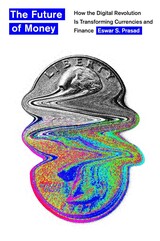 The Future of Money: How the Digital Revolution Is Transforming Currencies and Finance
Eswar S. Prasad
Harvard University Press An Economist Book of the Year
A Financial Times Book of the Year
A Foreign Affairs Book of the Year
A ProMarket Book of the Year
One of The Week’s Ten Best Business Books of the Year
“A road map for money managers, market strategists, and others seeking to understand this new world.”—Barron’s
“Money shapes economies, economies shape nations, nations shape history. It follows that the future of money is profoundly important. Here is a definitive report on where we are and where we are going.”—Lawrence H. Summers, former Secretary of the Treasury
“Prasad manages to make the financial system intelligible and interesting without resorting to shortcuts and exaggeration…Previous overhauls mainly improved existing systems, he notes. The end of cash—likely within a decade or two—is revolutionary.”—The Economist
The world of finance is on the cusp of a major disruption that will affect corporations, bankers, states—indeed, all of us. As Eswar Prasad makes clear, the end of physical cash will fundamentally rewrite how we live. Bitcoin, Ethereum, and other cryptocurrencies are just the beginning: spurred by their emergence, central banks will increasingly develop their own, more stable digital currencies. Meanwhile, cryptocurrencies themselves will evolve dramatically as global corporations like Meta, Apple, and Amazon join the game.
Prasad shows how these innovations will redefine the very concept of money, unbundling its traditional functions. This transformation promises greater efficiency and flexibility, but also carries the risk of instability, lack of accountability, and erosion of privacy. A lucid, visionary work, The Future of Money shows how to maximize the best and guard against the worst of what is to come.
The Future of National Urban Policy
Marshall Kaplan, ed.
Duke University Press, 1989 The Future of National Urban Policy brings together scholars, policymakers, and journalists to explore the condition of America's cities. The authors focus on policies of the previous five presidential administrations to examine the history of urban policy and offer suggestions for its future. Individual chapters address a variety of topics, including housing, employment, education, the infrastructure of cities, and public policy.
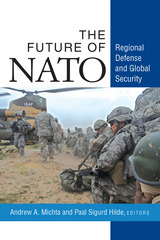 The Future of NATO: Regional Defense and Global Security
Andrew A. Michta and Paal Sigurd Hilde, editors
University of Michigan Press, 2014 The conclusion of International Security Assistance Force (ISAF) operations in Afghanistan in 2014 closes an important chapter in the history of the North Atlantic Treaty Organization (NATO). In this volume, European and US experts examine a range of perennial issues facing the Alliance, including relations with Russia, NATO’s institutional organization and command structure, and the role of the United States in the Alliance, in order to show how these issues shape today’s most pressing debate—the debate over the balance between NATO’s engagement in security operations globally and traditional defense within the North-Atlantic region. The volume’s contributors propose that NATO can indeed find a viable balance between competing, but not inherently incompatible, strategic visions. A theoretically informed, empirical account and analysis of NATO’s recent evolution, this volume will appeal to both security scholars and practitioners from the policy community.
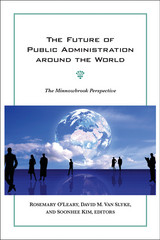 The Future of Public Administration around the World: The Minnowbrook Perspective
Rosemary O'Leary, David M. Van Slyke, and Soonhee Kim, Editors
Georgetown University Press, 2010 A once-in-a-generation event held every twenty years, the Minnowbrook conference brings together the top scholars in public administration and public management to reflect on the state of the field and its future. This unique volume brings together a group of distinguished authors—both seasoned and new—for a rare critical examination of the field of public administration yesterday, today, and tomorrow. The book begins by examining the ideas of previous Minnowbrook conferences, such as relevance and change, which are reflective of the 1960s and 1980s. It then moves beyond old Minnowbrook concepts to focus on public administration challenges of the future: globalism, twenty-first century collaborative governance, the role of information technology in governance, deliberative democracy and public participation, the organization of the future, and teaching the next generation of leaders. The book ends by coming full circle to examine the current challenge of remaining relevant.
There is no other book like this—nor is there ever likely to be another—in print. Simply put, the ideas, concepts, and spirit of Minnowbrook are one-of-a-kind. This book captures the soul of public administration past, present, and future, and is a must-read for anyone serious about the theory and practice of public administration.
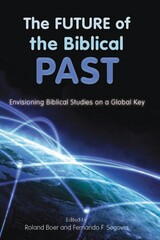 The Future of the Biblical Past: Envisioning Biblical Studies on a Global Key
Roland Boer
SBL Press, 2012 What does global biblical studies look like in the early decades of the twenty-first century, and what new directions may be discerned? Profound shifts have taken place over the last few decades as voices from the majority of the globe have begun and continue to reshape and relativize biblical studies. With contributors from Africa, Asia, the Pacific, Europe, Latin America, the Caribbean, and North America, this volume is a truly global work, offering surveys and assessments of the current situation and suggestions for the future of biblical criticism in all corners of the world. The contributors are Yong-Sung Ahn, George Aichele, Pablo R. Andiñach, Roland Boer, Fiona Black, Philip Chia, Nancy Cardoso Pereira, Jione Havea, Israel Kamudzandu, Milena Kirova, Tat-siong Benny Liew, Monica Melancthon, Judith McKinlay, Sarojini Nadar, Jorge Pixley, Jeremy Punt, Elisabeth Schüssler Fiorenza, Fernando F. Segovia, Hanna Stenström, Vincent Wimbush, and Gosnell Yorke.
The Future of the Dutch Colonial Past: Curating Heritage, Art and Activism
Emma van Bijnen
Amsterdam University Press, 2024 Institutions across the globe are increasingly questioned on how their foundations are rooted in colonialism and how they aim to ‘decolonize’. The Future of the Dutch Colonial Past provides an overview of critical scholarly reflections on the history of Dutch slavery and colonization, as well as how this translates into critical cultural practices. It also explores possible futures: What can heritage institutions learn from (international) best practices regarding the ‘decolonization’ of museums? And what role can contemporary artistic practices take in these processes? Through a variety of essays, interventions, interviews, and a roundtable conversation, scholars and cultural practitioners address these complex questions.
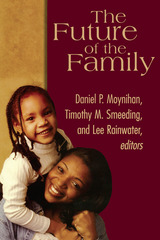 The Future of the Family
Daniel Patrick Moynihan
Russell Sage Foundation, 2004 High rates of divorce, single-parenthood, and nonmarital cohabitation are forcing Americans to reexamine their definition of family. This evolving social reality requires public policy to evolve as well. The Future of the Family brings together the top scholars of family policy—headlined by editors Lee Rainwater, Tim Smeeding, and, in his last published work, the late Senator Daniel Patrick Moynihan—to take stock of the state of the family in the United States today and address the ways in which public policy affects the family and vice versa. The volume opens with an assessment of new forms of family, discussing how reduced family income and lower parental involvement can disadvantage children who grow up outside of two-parent households. The book then presents three vastly dissimilar recommendations—each representing a different segment of the political spectrum—for how family policy should adapt to these changes. Child psychologist Wade Horn argues the case of political conservatives that healthy two-parent families are the best way to raise children and therefore should be actively promoted by government initiatives. Conversely, economist Nancy Folbre argues that government's role lies not in prescribing family arrangements but rather in recognizing and fostering the importance of caregivers within all families, conventional or otherwise. Will Marshall and Isabel Sawhill borrow policy prescriptions from the left and the right, arguing for more initiatives that demand personal responsibility from parents, as well as for an increase in workplace flexibility and the establishment of universal preschool programs. The book follows with commentary by leading policy analysts Samuel Preston, Frank Furstenberg Jr., and Irwin Garfinkel on the merits of the conservative and liberal arguments. Each suggests that marriage promotion alone is not enough to ensure a happy, healthy, and prosperous future for American children who are caught up in the vortex of family change. They agree that government investments in children, however, can promote superior developmental outcomes and even potentially encourage traditional families by enlarging the pool of "marriageable" individuals for the next generation. No government action can reverse trends in family formation or return America to the historic nuclear family model. But understanding social change is an essential step in fashioning effective policy for today's families. With authoritative insight, The Future of the Family broadens and updates our knowledge of how public policy and demography shape one another.
 The Future of the Jews: A People at the Crossroads?
David Vital
Harvard University Press, 1990 In this passionate and challenging book, a distinguished historian of Zionism argues that the world of Jewry is coming apart, that the old reality of Jewish nationhood lies shattered, that Israel is increasingly isolated, fated to go its separate way disengaged from Jewish communities in the Diaspora—most especially the Jewish community in the United States.
David Vital traces the roots of this disarray to the revolution—still unfinished—that began with the emancipation of the Jews in France after the Revolution, continued with the movement of Jews out of Europe and the decimation of European Jewry in the Holocaust, and culminated in the establishment of the state of Israel. For the first time in centuries the Jews have emerged as actors in history, with a nation-state of their own, but the political interests of Jews in Israel and of Jews in the Diaspora appear to be irreparably divided. The Jews are no longer a cohesive people, Vital claims; contemporary Jewry is profoundly fractured and dysfunctional, a fact that is nowhere more apparent than in the growing gap between the two largest Jewish communities in the world, the ones in Israel and in the United States.
This incisive book describes the waning of the Jewish nation, in an effort to lay the groundwork for a cool, clear, and more hardheaded view of the future of the Jews. Anyone with a serious interest in contemporary politics, and in the history and problematics of the Jews and Judaism, will find much to consider in this gripping book.
The Future of the Past: New Perspectives on Ukrainian History
Serhii Plokhy
Harvard University Press, 2016 Ukraine is in the midst of the worst international crisis in East-West relations since the Cold War, and history itself has become a battleground in Russia-Ukraine relations. Can history and historical narratives be blamed for what has happened in the region, or can they show the path to peace and reconciliation, helping to integrate the history of the region in the broader European context?
The essays collected here address these questions, rethinking the meaning of Ukrainian history by venturing outside boundaries established by the national paradigm, and demonstrating how research on the history of Ukraine can benefit from both regional and global perspectives. The Future of the Past shows how the study of Ukraine’s past enhances our understanding of Europe, Eurasia, and the world—past, present, and future.
The Future of the Sciences and Humanities: Four Analytical Essays and a Critical Debate on the Future of Scholastic Endeavor
Edited by P. A. J. Tindemans, A. A. Verrijn-Stuart, and R. P. W. Visser
Amsterdam University Press, 2002 The arts and sciences have evolved primarily through specialization and broadening of scope. Stepping outside of one’s established discipline, however, involves a danger of "shallowness," even if the primary challenge was a "deep" integration problem. All too often, current ways of defining academic disciplines and fields of research fail to do justice to new approaches—a problem this volume tackles as it debates the possible futures of scholarship and academia.
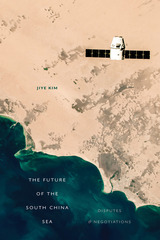 The Future of the South China Sea: Disputes and Negotiations
Jiye Kim
University of Michigan Press, 2026 For over seventy years, China has steadfastly asserted its sovereignty over the South China Sea, transforming these waters into a flashpoint of international tension and a focal point of global diplomacy. The Future of the South China Sea intricately explores China’s motivations, unveiling its ambitions in the South China Sea that are anything but static. Despite the prevailing narrative that frames China’s objectives as monolithic and unchanging, its underlying interests in the region have fluctuated in both content and urgency, driven by economic imperatives, historical legacies, domestic pressures, and broader international security concerns.
By incorporating negotiation records, such as the 1958 Declaration on China’s Territorial Sea, the 1992 ASEAN Declaration, and the 2005 Tripartite Agreement, Jiye Kim traces how China reshapes its interests into negotiation agendas, providing critical insights into the nation’s diplomacy and making a significant contribution to an existing literature on the South China Sea that has been largely dominated by analyses of great power rivalry. This book sheds light on China’s underlying interests as living and adaptable entities, providing scholars with a detailed, evidence-based understanding of the complexities that define one of the world’s most contested maritime regions.
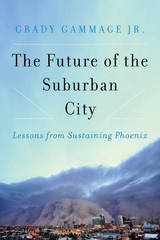 The Future of the Suburban City: Lessons from Sustaining Phoenix
Grady Gammage, Jr.
Island Press, 2016 There exists a category of American cities in which the line between suburban and urban is almost impossible to locate. These suburban cities arose in the last half of twentieth-century America, based largely on the success of the single-family home, shopping centers, and the automobile. The low-density, auto-centric development of suburban cities, which are largely in the arid West, presents challenges for urban sustainability as it is traditionally measured. Yet, some of these cities—Los Angeles, Las Vegas, Phoenix, Salt Lake, Dallas, Tucson, San Bernardino, and San Diego—continue to be among the fastest growing places in the United States.
In The Future of the Suburban City, Phoenix native Grady Gammage, Jr. looks at the promise of the suburban city as well as the challenges. He argues that places that grew up based on the automobile and the single-family home need to dramatically change and evolve. But suburban cities have some advantages in an era of climate change, and many suburban cities are already making strides in increasing their resilience. Gammage focuses on the story of Phoenix, which shows the power of collective action — government action — to confront the challenges of geography and respond through public policy. He takes a fresh look at what it means to be sustainable and examines issues facing most suburban cities around water supply, heat, transportation, housing, density, urban form, jobs, economics, and politics.
The Future of the Suburban City is a realistic yet hopeful story of what is possible for any suburban city.
The Future of the U.S. Intercontinental Ballistic Missile Force
Lauren Caston
RAND Corporation, 2014 The authors assess alternatives for a next-generation intercontinental ballistic missile (ICBM) across a broad set of potential characteristics and situations. They use the current Minuteman III as a baseline to develop a framework to characterize alternative classes of ICBMs, assess the survivability and effectiveness of possible alternatives, and weigh those alternatives against their cost.
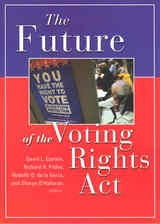 The Future of the Voting Rights Act
David Epstein
Russell Sage Foundation, 2006 The Voting Rights Act (VRA) stands among the great achievements of American democracy. Originally adopted in 1965, the Act extended full political citizenship to African-American voters in the United States nearly 100 years after the Fifteenth Amendment first gave them the vote. While Section 2 of the VRA is a nationwide, permanent ban on discriminatory election practices, Section 5, which is set to expire in 2007, targets only certain parts of the country, requiring that legislative bodies in these areas—mostly southern states with a history of discriminatory practices—get permission from the federal government before they can implement any change that affects voting. In The Future of the Voting Rights Act, David Epstein, Rodolfo de la Garza, Sharyn O'Halloran, and Richard Pildes bring together leading historians, political scientists, and legal scholars to assess the role Section 5 should play in America's future. The contributors offer varied perspectives on the debate. Samuel Issacharoff questions whether Section 5 remains necessary, citing the now substantial presence of blacks in legislative positions and the increasingly partisan enforcement of the law by the Department of Justice (DOJ). While David Epstein and Sharyn O'Halloran are concerned about political misuse of Section 5, they argue that it can only improve minority voting power—even with a partisan DOJ—and therefore continues to serve a valuable purpose. Other contributors argue that the achievements of Section 5 with respect to blacks should not obscure shortcomings in the protection of other groups. Laughlin McDonald argues that widespread and systematic voting discrimination against Native Americans requires that Section 5 protections be expanded to more counties in the west. Rodolfo de la Garza and Louis DeSipio point out that the growth of the Latino population in previously homogenous areas and the continued under-representation of Latinos in government call for an expanded Section 5 that accounts for changing demographics. As its expiration date approaches, it is vital to examine the role that Section 5 still plays in maintaining a healthy democracy. Combining historical perspective, legal scholarship, and the insight of the social sciences, The Future of the Voting Rights Act is a crucial read for anyone interested in one of this year's most important policy debates and in the future of civil rights in America.
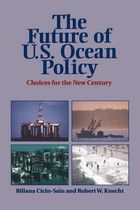 The Future of U.S. Ocean Policy: Choices For The New Century
Biliana Cicin-Sain and Robert W. Knecht
Island Press, 2000 The United States is about to embark on the most thorough reconsideration of its ocean policy in more than three decades. With 1998 designated as the International Year of the Ocean by the United Nations, and with both the executive branch and the Congress currently working toward developing new approaches to formulating and implementing ocean policy, a comprehensive overview of key issues and concerns is essential. The Future of U.S. Ocean Policy provides such an overview, with an in-depth analysis of the evolution of U.S. ocean policy and a timely discussion of the most important ocean and coastal issues facing the nation. The book assesses the current status of ocean policy, examines national and international trends, and considers choices for policymakers in the 21st century. Following an introductory chapter that reviews national ocean policy and the process by which it is made, the authors: - review the history of development of U.S. ocean and coastal policy
- examine the major ocean laws enacted in the 1970s and review and assess their record of implementation
- examine factors that will affect U.S. ocean policy in the coming decade
- discuss the need to make policy more coherent, and to develop institutional mechanisms that can foster more effective guidance and oversight
- present a set of policy options for improving U.S. ocean policy
The Future of U.S. Ocean Policy is the only recent book that focuses on national ocean policy in its entirety, and will play an important role in upcoming debates concerning the future direction of policy initiatives. Agency personnel, members and staff of nongovernmental organizations, industry groups, Congressional staffers, state and local government officials, academics, and concerned citizens will find the book an invaluable guide, as will students and faculty in courses in marine and coastal management and in environmental management.
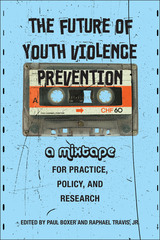 The Future of Youth Violence Prevention: A Mixtape for Practice, Policy, and Research
Paul Boxer
Rutgers University Press, 2025 The Future of Youth Violence Prevention: A Mixtape for Practice, Policy, and Research focuses on innovative approaches to youth violence prevention that utilize consistent principles found within existing best practices but are dynamic and adaptable across settings—and the sociohistorical and cultural realities of those settings. This book features scholars anchored in applied practices who can ground these forward-thinking strategies in the substantive base of research and theory that has produced successful interventions across multiple disciplines. The scholarship and cutting-edge thinking assembled in this volume could produce new-era youth violence prevention coordinators prepared to serve in any setting—including community outreach programs, therapeutic group homes, day reporting centers, juvenile probation offices, schools, or clinics. These coordinators will be able to cocreate intervention techniques using core prevention elements drawing from a range of ideas and a multitude of disciplines while embracing the assets and resources already in place.
 The FUTURE PERFECT: A FUGUE
Eric Pankey
Tupelo Press, 2022 “I am stunned, delighted, and moved by the seamless merging of meaning and music that unfolds throughout The Future Perfect: A Fugue. Whether made up of one sentence or a dozen, each section of this long, single work stands on its own, as self-sufficient as a painting in a museum, while contributing to the whole masterful gathering. “This is an intricate work of decisive oscillation, of tender and careful attention shifting swiftly and precisely between the infinitesimal and the vast, and between one concrete reality and another, without ever losing its way: The house rages, but is not consumed. Ablaze, it stands as square and certain as a child’s drawing. In each window: flames instead of curtains. “Such sure-footed writing is astonishing. It would be an understatement to point out that the reader rarely encounters such piercing visionary states, with the author highly alert to sound and syllable, while focused on meaning: Is it disillusion or dissolution that one experiences first? “Throughout, the author probes our capacity for perception: what do we see (the present), remember (the past), and imagine (the future)? And how do we understand them? What elevates the writing even more is the unmistakable passion and urgency pulsing throughout each of the poem’s sections, the deliberate and inspired choice of every word.”
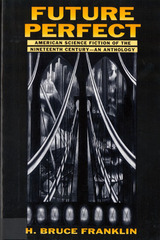 Future Perfect: American Science Fiction of the Nineteenth Century: An Anthology
Franklin, H. Bruce
Rutgers University Press, 1995 Winner of the 2008 American Studies Association's Carl Bode-Norman Holmes Pearson Prize "for lifetime of achievement and service"
This selection of unusual storeis by important American writers-Hawthorne, Melville, Poe, Bellamy and Twain-and by less well-known tellers such as Ambrose Bierce, S. Weir Mitchell and Fitz-James O'Brien, challenges the commonly held belief that science fiction is a twenthiethcentury phenomenon, or that it began with Jule Verne and H,. G. Wells. Here are tales of marvelous inventions, automanta, biolgocial and psychological experiments, utopias, extra-sensory perception and time and space travel. Many of them have been out of print since before World War I, but they remain high in intrinsic interest of the general reader and for the specialist.
The accompanying critical essays explore the relationships between science fiction and other financial modes, and illuminate the nataure of the bonds betwen science and society and fantasies and social aspirations. Professor Franklin also offers an original, theoretical definition of science ficiton. This book comes as a revelatin. One of the best-edited anthologies I have ever encountered...Mr. Franklin's critical introductions, containing much valuable information about many works not included in this book, are as interesting as the stories he prints.
Future Practices of Citizenship in Asia and the West: Care of the Self (Volume III)
Gregory Bracken
Amsterdam University Press, 2025 Future Practices of Citizenship in Asia and the West investigates some of the greatest challenges facing society in the twenty-first century, including the struggle for rights and recognition by indigenous peoples, women, migrants, and the young, as well as the dampening effects some government responses to COVID-19 have had on artistic freedom and citizen participation. The ill effects of digitisation on citizenship, however, are tempered by some more positive approaches from grass-roots activities. Perhaps the most acute challenge facing the world today is climate change, an issue that can be both positive and negative, depending on how we respond to it. All the papers in this book share a people-centred approach based around Michel Foucault’s Care of the Self.
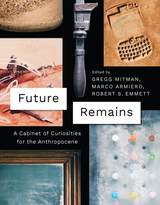 Future Remains: A Cabinet of Curiosities for the Anthropocene
Edited by Gregg Mitman, Marco Armiero, Robert S. Emmett
University of Chicago Press, 2018 What can a pesticide pump, a jar full of sand, or an old calico print tell us about the Anthropocene—the age of humans? Just as paleontologists look to fossil remains to infer past conditions of life on earth, so might past and present-day objects offer clues to intertwined human and natural histories that shape our planetary futures. In this era of aggressive hydrocarbon extraction, extreme weather, and severe economic disparity, how might certain objects make visible the uneven interplay of economic, material, and social forces that shape relationships among human and nonhuman beings?
Future Remains is a thoughtful and creative meditation on these questions. The fifteen objects gathered in this book resemble more the tarots of a fortuneteller than the archaeological finds of an expedition—they speak of planetary futures. Marco Armiero, Robert S. Emmett, and Gregg Mitman have assembled a cabinet of curiosities for the Anthropocene, bringing together a mix of lively essays, creatively chosen objects, and stunning photographs by acclaimed photographer Tim Flach. The result is a book that interrogates the origins, implications, and potential dangers of the Anthropocene and makes us wonder anew about what exactly human history is made of.
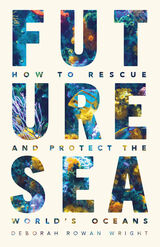 Future Sea: How to Rescue and Protect the World’s Oceans
Deborah Rowan Wright
University of Chicago Press, 2020 A counterintuitive and compelling argument that existing laws already protect the entirety of our oceans—and a call to understand and enforce those protections.
The world’s oceans face multiple threats: the effects of climate change, pollution, overfishing, plastic waste, and more. Confronted with the immensity of these challenges and of the oceans themselves, we might wonder what more can be done to stop their decline and better protect the sea and marine life. Such widespread environmental threats call for a simple but significant shift in reasoning to bring about long-overdue, elemental change in the way we use ocean resources. In Future Sea, ocean advocate and marine-policy researcher Deborah Rowan Wright provides the tools for that shift. Questioning the underlying philosophy of established ocean conservation approaches, Rowan Wright lays out a radical alternative: a bold and far-reaching strategy of 100 percent ocean protection that would put an end to destructive industrial activities, better safeguard marine biodiversity, and enable ocean wildlife to return and thrive along coasts and in seas around the globe.
Future Sea is essentially concerned with the solutions and not the problems. Rowan Wright shines a light on existing international laws intended to keep marine environments safe that could underpin this new strategy. She gathers inspiring stories of communities and countries using ocean resources wisely, as well as of successful conservation projects, to build up a cautiously optimistic picture of the future for our oceans—counteracting all-too-prevalent reports of doom and gloom. A passionate, sweeping, and personal account, Future Sea not only argues for systemic change in how we manage what we do in the sea but also describes steps that anyone, from children to political leaders (or indeed, any reader of the book), can take toward safeguarding the oceans and their extraordinary wildlife.
Future Theatre Research: Origin, Medium, Performance-Text, Reception and Acting
Eli Rozik
Sussex Academic Press, 2022 Eli Rozik explores the principles that generated the theatre medium, and its possible roots in the preverbal imagistic mode of thinking. This mode characterises the remnants of preverbal thinking, such as unconscious thinking (dreaming), the embryonic speech of toddlers, and the imaginative play and drawings done prior to mastering verbal thinking. The book is a recapitulation of major findings regarding the nature of the theatre, its medium, fictional creativity, and origin. It includes new unpublished studies, and it address the principles of imagistic, metaphoric, symbolic, and fictional thinking, which characterise the theatre, as well as reception and acting. The work has been designed to fit the structure of a university course, and will appeal to people interested in broadening their knowledge and understanding of theatre art. [Subject: Performing Arts & Theatre]
The Future Will Call You Something Else
Natasha Sajé
Tupelo Press, 2023 “Natasha Sajé’s quicksilver, wideawake poems in The Future Will Call You Something Else never fail to delight and impress me with their at-the-ready empathy, encyclopedic wit, and prismatic range of allusions. With its ‘all systems go’ verve and vigorous attention to the myriad world, this dazzling, exhilarating new book is a treasure and a wonder.”
—Cyrus Cassells
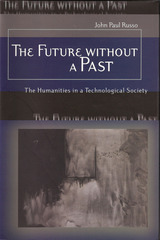 The Future without a Past: The Humanities in a Technological Society
John Paul Russo
University of Missouri Press, 2005
In The Future without a Past, John Paul Russo goes beyond currently given reasons for the decline of the humanities and searches out its root causes in the technologization of everyday life. His main premise is that we are undergoing a transformation at the hands of technological imperatives such as rationalization, universalism, monism, and autonomy. The relation between ourselves and nature has altered to such a degree that we no longer live in a natural environment but in a technological one. According to Russo, technological values have actually eroded human values instead of being “humanized” by them.
What are the implications of this shift for the humanities, traditionally seen as safeguards of the human? Russo addresses this question by situating the decline of the humanities within the larger social and historical panorama. He explores how technological values have infiltrated the humanities to the point of weakening their instruction and undermining their force; at the same time, he shows how the humanities have confronted these trends and can continue to do so. Russo believes that if we understand how technology “works” and the nature of its powers, we will then know in which realms it must be accepted and where it should be resisted.
Russo outlines the components of the technological system and examines their impact on the educational system. He also discusses the loss of historical memory, including the so-called loss of the self and the transformation of the library. He studies the parallels between technological and literary values in criticism and theory, concluding with an analysis of the fiction of Don DeLillo, one of the most prominent contemporary novelists. DeLillo’s exploration of technology in American life, matched by a powerful critique of it from a broadly humanistic and religious perspective, serves to summarize the themes of the book as a whole.
The Future without a Past will appeal to scholars and students of literary studies, intellectual and cultural history, philosophy, ethics, media studies, and American studies, as well as to general readers who are seeking deeper insights into today’s cultural debates.
 FUTURE/PRESENT: Arts in a Changing America
Daniela Alvarez, Roberta Uno, and Elizabeth M. Webb, editors
Duke University Press, 2024 FUTURE/PRESENT brings together a vast collection of writers, artists, activists, and academics working at the forefront of today’s most pressing struggles for cultural equity and racial justice in a demographically changing America. The volume builds upon five years of national organizing by Arts in a Changing America, an artist-led initiative that challenges structural racism by centering people of color who are leading innovation at the nexus of arts production, community benefit, and social change. FUTURE/PRESENT includes a range of essays and criticism, visual and performance art, artist manifestos, interviews, poetry, and reflections on community practice. Throughout, contributors examine issues of placekeeping and belonging, migration and diasporas, the carceral state, renegotiating relationships with land, ancestral knowledge as radical futurity, and shifting paradigms of inequity. Foregrounding the powerful resilience of communities of color, FUTURE/PRESENT advances the role of artists as first responders to injustices, creative stewards in the cohesion and health of communities, and innovative strategists for equity.
Selected contributors. Dahlak Brathwaite, adrienne maree brown, Jeff Chang, Tameca Cole, Ofelia Esparza, Antoine Hunter, Nobuko Miyamoto, Wendy Red Star, Spel, Jose Antonio Vargas, Carrie Mae Weems, Hinaleimoana Kwai Kong Wong-Kalu
 Futureproof: Security Aesthetics and the Management of Life
D. Asher Ghertner, Daniel M. Goldstein, and Hudson McFann, editors
Duke University Press, 2020 Security is a defining characteristic of our age and the driving force behind the management of collective political, economic, and social life. Directed at safeguarding society against future peril, security is often thought of as the hard infrastructures and invisible technologies assumed to deliver it: walls, turnstiles, CCTV cameras, digital encryption, and the like. The contributors to Futureproof redirect this focus, showing how security is a sensory domain shaped by affect and image as much as rules and rationalities. They examine security as it is lived and felt in domains as varied as real estate listings, active-shooter drills, border crossings, landslide maps, gang graffiti, and museum exhibits to theorize how security regimes are expressed through aesthetic forms. Taking a global perspective with studies ranging from Jamaica to Jakarta and Colombia to the U.S.-Mexico border, Futureproof expands our understanding of the security practices, infrastructures, and technologies that pervade everyday life.
Contributors. Victoria Bernal, Jon Horne Carter, Alexandra Demshock, Zaire Z. Dinzey-Flores, Didier Fassin, D. Asher Ghertner, Daniel M. Goldstein, Rachel Hall, Rivke Jaffe, Ieva Jusionyte, Catherine Lutz, Alejandra Leal Martínez, Hudson McFann, Limor Samimian-Darash, AbdouMaliq Simone, Austin Zeiderman
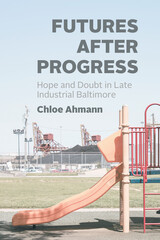 Futures after Progress: Hope and Doubt in Late Industrial Baltimore
Chloe Ahmann
University of Chicago Press, 2024 A powerful ethnographic study of South Baltimore, a place haunted by toxic pasts in its pursuit of better futures.
Factory fires, chemical explosions, and aerial pollutants have inexorably shaped South Baltimore into one of the most polluted places in the country. In Futures after Progress, anthropologist Chloe Ahmann explores the rise and fall of industrial lifeways on this edge of the city and the uncertainties that linger in their wake. Writing from the community of Curtis Bay, where two hundred years of technocratic hubris have carried lethal costs, Ahmann also follows local efforts to realize a good future after industry and the rifts competing visions opened between neighbors.
Examining tensions between White and Black residents, environmental activists and industrial enthusiasts, local elders and younger generations, Ahmann shows how this community has become a battleground for competing political futures whose stakes reverberate beyond its six square miles in a present after progress has lost steam. And yet—as one young resident explains—“that’s not how the story ends.” Rigorous and moving, Futures after Progress probes the deep roots of our ecological predicament, offering insight into what lies ahead for a country beset by dreams deferred and a planet on the precipice of change.
Futures At Stake: Youth, Gambling, And Society
Howard J. Shaffer
University of Nevada Press, 2003 The widespread legalization of gambling across the U.S. has produced concerns for serious social, economic, and health problems. For the first time in this country, an entire generation of young people has reached adulthood within a context of approval and endorsement of gambling as a source of entertainment and recreation. Compared with their adult counterparts, these young people have evidenced a higher level of gambling related problems. In Futures at Stake, specialists in psychology, medicine, law, public health, economics, casino management, psychiatry, and criminal justice examine this problem from the perspective of their various disciplines, producing an intelligent, thought-provoking, and valuable survey of what is fast becoming a leading social-health problem across the nation. Foreword by Thomas N. Cummings.
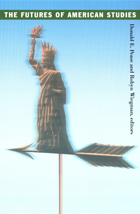 The Futures of American Studies
Donald E. Pease and Robyn Wiegman, eds.
Duke University Press, 2002 Originating as a proponent of U.S. exceptionalism during the Cold War, American Studies has now reinvented itself, vigorously critiquing various kinds of critical hegemony and launching innovative interdisciplinary endeavors. The Futures of American Studies considers the field today and provides important deliberations on what it might yet become. Essays by both prominent and emerging scholars provide theoretically engaging analyses of the postnational impulse of current scholarship, the field's historical relationship to social movements, the status of theory, the state of higher education in the United States, and the impact of ethnic and gender studies on area studies. They also investigate the influence of poststructuralism, postcolonial studies, sexuality studies, and cultural studies on U.S. nationalist—and antinationalist—discourses. No single overriding paradigm dominates the anthology. Instead, the articles enter into a lively and challenging dialogue with one another. A major assessment of the state of the field, The Futures of American Studies is necessary reading for American Studies scholars. Contributors. Lindon Barrett, Nancy Bentley, Gillian Brown, Russ Castronovo, Eric Cheyfitz, Michael Denning, Winfried Fluck, Carl Gutierrez-Jones, Dana Heller, Amy Kaplan, Paul Lauter, Günter H. Lenz, George Lipsitz, Lisa Lowe, Walter Benn Michaels, José Estaban Muñoz, Dana D. Nelson, Ricardo L. Ortiz, Janice Radway, John Carlos Rowe, William V. Spanos
 Futures of Chinese Cinema: Technologies and Temporalities in Chinese Screen Cultures
Edited by Olivia Khoo and Sean Metzger
Intellect Books, 2009 In recent years, Chinese film has garnered worldwide attention, and this interdisciplinary collection investigates how new technologies, changing production constraints, and shifting viewing practices have shaped perceptions of Chinese screen cultures. For the first time, international scholars from film studies, media studies, history and sociology have come together to examine technology and temporality in Chinese cinema today. Futures of Chinese Cinema takes an innovative approach, arguing for a broadening of Chinese screen cultures to account for new technologies of screening, from computers and digital video to smaller screens (including mobile phones). It also considers time and technology in both popular blockbusters and independent art films from mainland China, Taiwan, Hong Kong, and the Chinese diasporas. The contributors explore transnational connections, including little-discussed Chinese-Japanese and Sino-Soviet interactions. With an exciting array of essays by established and emerging scholars, Futures of Chinese Cinema represents a fresh contribution to film and cultural studies.
Futures of Dance Studies
Susan Manning
University of Wisconsin Press, 2020 A collaboration between well-established and rising scholars, Futures of Dance Studies suggests multiple directions for new research in the field. Essays address dance in a wider range of contexts—onstage, on screen, in the studio, and on the street—and deploy methods from diverse disciplines. Engaging African American and African diasporic studies, Latinx and Latin American studies, gender and sexuality studies, and Asian American and Asian studies, this anthology demonstrates the relevance of dance analysis to adjacent fields.
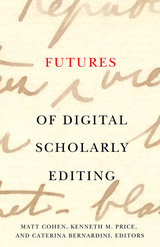 Futures of Digital Scholarly Editing
Matt Cohen
University of Minnesota Press, 2025 Exploring technology, ethics, and culture to unlock digital scholarship’s future
Futures of Digital Scholarly Editing navigates the ever-shifting terrain of digital academia, examining practical and ethical considerations as technology continues to evolve. In this indispensable collection, digital humanities practitioners and scholars work with a wide range of archival materials to confront key challenges surrounding the adaptation and sustainability of digital editorial projects as well as their societal impact. Broaching essential questions at the nexus of technology and culture, Futures of Digital Scholarly Editing is organized around three principal frameworks: access, sustainability, and interoperability; ethics and community involvement; and the evolution of textual scholarship. From addressing outdated technical infrastructures to fostering new collaborations, this volume serves as a beacon guiding scholars and institutions through the complexities of digital editing in an era of profound technological and societal transformation. Contributors: Stephanie P. Browner, The New School; Julia Flanders, Northeastern U; Ed Folsom, U of Iowa; Nicole Gray, U of Nebraska–Lincoln; Cassidy Holahan, U of Nevada, Las Vegas; Fotis Jannidis, U of Würzburg; Aylin Malcolm, U of Guelph; Sarah Lynn Patterson, U of Massachusetts Amherst; Elena Pierazzo, U of Tours; K.J. Rawson, Northeastern U; Whitney Trettien, U of Pennsylvania; John Unsworth, U of Virginia; Dirk Van Hulle, U of Oxford; Robert Warrior, U of Kansas; Marta L. Werner, Loyola U Chicago. Retail e-book files for this title are screen-reader friendly with images accompanied by short alt text and/or extended descriptions.
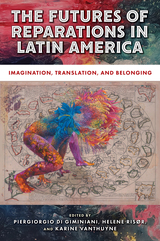 The Futures of Reparations in Latin America: Imagination, Translation, and Belonging
Piergiorgio Di Giminiani
Rutgers University Press, 2026 Over the last thirty years, Latin America has undergone an unprecedented wave of reparations targeting victims of political violence during military regimes, Indigenous and Afro-Latin groups affected by historical processes of dispossession, and citizens suffering from environmental harm. Reparations prompt us to face uncomfortable pasts and in so doing, create conditions for imagination of multiple futures. In representing the experiences and hopes of those affected by political violence in El Salvador and Argentina, environmental harm in Guatemala and Peru, and colonial dispossession in Chile and Bolivia, reparations are built upon conflictive forms of future imagination, translation of harm and new forms of belonging to and beyond the nation state, which reifies as much as challenges state authority over the promises of actual repair. In today’s Latin American political debate, hopes for justice and democracy remain anchored to the question of the kinds of future that can be imagined through and after reparation.
 Futures of the Sun: The Struggle over Renewable Life
Imre Szeman
University of Minnesota Press, 2024 Who will lead the transition from fossil fuel–dependent societies into renewable energy futures? Energy transition is crucial to the struggle against climate change. But even while embracing the death of fossil fuels, some want to preserve the current social and political order. Futures of the Sun explores the competing eco-stories being offered by people intent on shaping the transition to fit their vision and version of a renewable society. Imre Szeman explains how and why key players are working hard to make sure a greener, cleaner future will look much like the world we live in today. He examines the rhetoric, ideology, and politics of liberal nationalists intent on fighting a war against climate change, billionaire solar entrepreneurs who believe only in themselves, and the populist far right who want no change at all. Offering possible new critical and political avenues, Szeman reveals how those on the environmental left can ensure their vision of egalitarianism beyond the status quo can become the reality of our renewable future.
 Futures Past: Thirty Years of Arts Computing
Edited by Anna Bentkowska-Kafel, Trish Cashen, and Hazel Gardiner
Intellect Books, 2007 In decades past, artists envisioned a future populated by technological wonders such as hovercraft vehicles and voice-operated computers. Today we barely recognize these futuristic landscapes that bear only slight resemblance to an everyday reality. Futures Past considers digital media’s transformative impact on the art world from a perspective of thirty years’ worth of hindsight. Herein a distinguished group of contributors—from researchers and teachers to curators and artists—argue for a more profound understanding of digital culture in the twenty-first century.
This unprecedented volume examines the disparities between earlier visions of the future of digital art and its current state, including frank accounts of promising projects that failed to deliver and assessments of more humble projects that have not only survived, but flourished. Futures Past is a look back at the frenetic history of computerized art that points the way toward a promising future.
 Futuring Black Lives: Independent Black Institutions and the Literary Imagination
Maisha T. Winn
Vanderbilt University Press, 2025 Futuring Black Lives is a historical ethnography examining Black institution builders in the late 1960s and early 1970s and their work to leverage the power of publications and the literary imagination to engage “concerned men and women” in conversations about the educational journeys and futures of Black children. While many began as reactions to anti-Blackness and American public schooling failing Black children, Independent Black Institutions (IBIs) came to be viable ecosystems anchored in a shared Black value system preparing Black children in three areas: identity, purpose, and direction.
The rationale for establishing and valuing IBIs remains highly relevant, given the sociopolitical landscape of education today. In addition to persistent racial disparities in academic achievement and Black students’ highly disproportionate experiences of punishment and “discipline,” friction and legislation against critical examination of race, racism, and racist ideas in school settings are front and center, and children’s and young adult literature are under attack through censorship and outright book bans. Yet Black institution builders left useful maps of and for the educational future/s of Black children that remain available in journals, newspapers, pamphlets, and other ephemera. Author Maisha T. Winn demonstrates how and why the historiography-grounded futuring of Black education can and should inform current pursuits of equity, justice, and liberation through education.
Futurist Cinema: Studies on Italian Avant-garde Film
Edited by Rossella Catanese
Amsterdam University Press, 2018 Futurism and early cinema shared a fascination with dynamic movement and speed, presenting both as harbingers of an emerging new way of life and new aesthetic criteria. And the Futurists quickly latched on to cinema as a device with great potential to manipulate our perceptions in order to create a new world. In the edited collection Futurist Cinema, Rossella Catanese explores that conjunction, bringing in avant-garde artists and their manifestos to show how painters and other artists turned to cinema as a model for overcoming the inherently static nature of painting in order to rethink it for a new era.
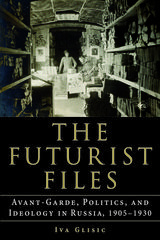 The Futurist Files: Avant-Garde, Politics, and Ideology in Russia, 1905–1930
Iva Glisic
Northern Illinois University Press, 2018 Futurism was Russia’s first avant-garde movement. Gatecrashing the Russian public sphere in the early twentieth century, the movement called for the destruction of everything old, so that the past could not hinder the creation of a new, modern society. Over the next two decades, the protagonists of Russian Futurism pursued their goal of modernizing human experience through radical art.
The success of this mission has long been the subject of scholarly debate. Critics have often characterized Russian Futurism as an expression of utopian daydreaming by young artists who were unrealistic in their visions of Soviet society and naïve in their comprehension of the Bolshevik political agenda. By tracing the political and ideological evolution of Russian Futurism between 1905 and 1930, Iva Glisic challenges this view, demonstrating that Futurism took a calculated and systematic approach to its contemporary socio-political reality. This approach ultimately allowed Russia’s Futurists to devise a unique artistic practice that would later become an integral element of the distinctly Soviet cultural paradigm.
Drawing upon a unique combination of archival materials and employing a theoretical framework inspired by the works of philosophers such as Lewis Mumford, Karl Mannheim, Ernst Bloch, Fred Polak, and Slavoj Žižek, The Futurist Files presents Futurists not as blinded idealists, but rather as active and judicious participants in the larger project of building a modern Soviet consciousness. This fascinating study ultimately stands as a reminder that while radical ideas are often dismissed as utopian, and impossible, they did—and can—have a critical role in driving social change. It will be of interest to art historians, cultural historians, and scholars and students of Russian history.
The Futurist Moment: Avant-Garde, Avant Guerre, and the Language of Rupture, with a New Preface
Marjorie Perloff
University of Chicago Press, 2004 Marjorie Perloff's stunning book was one of the first to offer a serious and far-reaching examination of the momentous flourishing of Futurist aesthetics in the European art and literature of the early twentieth century. Offering penetrating considerations of the prose, visual art, poetry, and carefully crafted manifestos of Futurists from Russia to Italy, Perloff reveals the Moment's impulses and operations, tracing its echoes through the years to the work of "postmodern" figures like Roland Barthes. This updated edition, with its new preface, reexamines the Futurist Moment in the light of a new century, in which Futurist aesthetics seem to have steadily more to say to the present.
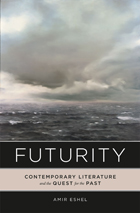 Futurity: Contemporary Literature and the Quest for the Past
Amir Eshel
University of Chicago Press, 2012 When looking at how trauma is represented in literature and the arts, we tend to focus on the weight of the past. In this book, Amir Eshel suggests that this retrospective gaze has trapped us in a search for reason in the madness of the twentieth century’s catastrophes at the expense of literature’s prospective vision. Considering several key literary works, Eshel argues in Futurity that by grappling with watershed events of modernity, these works display a future-centric engagement with the past that opens up the present to new political, cultural, and ethical possibilities—what he calls futurity. Bringing together postwar German, Israeli, and Anglo-American literature, Eshel traces a shared trajectory of futurity in world literature. He begins by examining German works of fiction and the debates they spurred over the future character of Germany’s public sphere. Turning to literary works by Jewish-Israeli writers as they revisit Israel’s political birth, he shows how these stories inspired a powerful reconsideration of Israel’s identity. Eshel then discusses post-1989 literature—from Ian McEwan’s Black Dogs to J. M. Coetzee’s Diary of a Bad Year—revealing how these books turn to events like World War II and the Iraq War not simply to make sense of the past but to contemplate the political and intellectual horizon that emerged after 1989. Bringing to light how reflections on the past create tools for the future, Futurity reminds us of the numerous possibilities literature holds for grappling with the challenges of both today and tomorrow.
Fuzzy Logic Control in Energy Systems: With design examples in MATLAB®/Simulink®
İsmail Hakkı Altaş
The Institution of Engineering and Technology, 2024 Fuzzy models have the capability of recognising, representing, and working with data that is vague or lacks certainty, making them suitable for managing electrical energy systems involving intermittent distributed generation and varying distributed loads.
 Fuzzy-Set Social Science
Charles C. Ragin
University of Chicago Press, 2000 In this innovative approach to the practice of social science, Charles Ragin explores the use of fuzzy sets to bridge the divide between quantitative and qualitative methods. Paradoxically, the fuzzy set is a powerful tool because it replaces an unwieldy, "fuzzy" instrument—the variable, which establishes only the positions of cases relative to each other, with a precise one—degree of membership in a well-defined set.
Ragin argues that fuzzy sets allow a far richer dialogue between ideas and evidence in social research than previously possible. They let quantitative researchers abandon "homogenizing assumptions" about cases and causes, they extend diversity-oriented research strategies, and they provide a powerful connection between theory and data analysis. Most important, fuzzy sets can be carefully tailored to fit evolving theoretical concepts, sharpening quantitative tools with in-depth knowledge gained through qualitative, case-oriented inquiry. This book will revolutionize research methods not only in sociology, political science, and anthropology but in any field of inquiry dealing with complex patterns of causation.
 Fyodor Dostoevsky: In the Beginning (1821–1845): A Life in Letters, Memoirs, and Criticism
Thomas Gaiton Marullo
Northern Illinois University Press, 2016 More than a century after his death in 1881, Fyodor Dostoevsky continues to fascinate readers and reviewers. Countless studies of his writing have been published—more than a dozen in the past few years alone. In this important new work, Thomas Marullo provides a diary-portrait of Dostoevsky’s early years drawn from the letters, memoirs, and criticism of the writer, as well as from the testimony and witness of family and friends, readers and reviewers, and observers and participants in his life.
Marullo’s exhaustive search of published materials on Dostoevsky sheds light on many unexplored corners of Dostoevsky’s childhood, adolescence, and youth. Speakers of excerpts are given maximum freedom: Anything they said about the writer—the good and the bad, the truth and the lies—are included, with extensive footnotes providing correctives, counter-arguments, and other pertinent information.
The first part of this volume, “All in the Family,” focuses on Dostoevsky’s early formation and schooling, i.e., his time in city and country, and his ties to his family, particularly his parents. The second section, “To Petersburg!,” features Dostoevsky’s early days in Russia’s imperial city, his years at the Main Engineering Academy, and the death of his father. The third part, “Darkness before Dawn,” deals with the writer’s youthful struggles and strivings, culminating in the success of his work, Poor Folk. This clear and comprehensive portrait of one of the world’s greatest writers will appeal to students, teachers, and scholars of Dostoevsky’s early life, as well as general readers interested in Dostoevsky, literature, and history.
Fyodor Dostoevsky, Walker Percy, and the Age of Suicide
John F. Desmond
Catholic University of America Press, 2019 Fyodor Dostoevsky, Walker Percy, and the Age of Suicide is a study of the phenomenon of suicide in modern and post-modern society as represented in the major fictional works of Fyodor Dostoevsky and Walker Percy. In his study, suicide is understood in both a literal and spiritual sense as referring to both the actual suicides in their works and to the broader social malaise of spiritual suicide, or despair. In the 19th century Dostoevsky called suicide “the terrible question of our age”. For his part, Percy understood 20th century Western culture as “suicidal” in both its social, political and military behavior and in the deeper sense that its citizenry had suffered an ontological “loss of self” or “deformation” of being. Likewise, Thomas Merton called the 20th century an “age of suicide”.
|
|
